بسم الله الرحمن الرحيم
Assalamu Alaikum.
In the last two parts, four minor signs were covered. This part -the last in this series – will cover just one more sign, along with a real life pictorial summary of all four signs. The meaning of these signs will also be discussed, in shaa Allah.
5. Decoration of Homes
عَنْ أَبِي هُرَيْرَةَ قَالَ: قَالَ رَسُولُ اللهِ صلى الله عليه وسلم: لاَ تَقُومُ السَّاعَةُ حَتَّى يَبْنِيَ النَّاسُ بُيُوتًا يُوشُونَهَا وَشْيَ الْمَرَاحِيلِ قَالَ إِبْرَاهِيمُ: يَعْنِي الثِّيَابَ الْمُخَطَّطَةَ
Abu Hurairah (radiallahu anhu) said: The Messenger of Allah (sallallahu alaihi wasallam) said, “The Hour will not come until houses are adorned like painted garments.”
Ibrahim (bin Al-Mundhir) said: “He meant striped garments.” [Al-Adab Al-Mufrad, Hadeeth No. 777. Shaikh Al-Albani stated that its “sanad” (chain of narrators) was “sahih” (authentic) in Silsilah Ahadeeth As-Saheehah, Hadeeth No. 279.]
In order to understand how simple homes actually were in the past, let’s look at some old homes-turned-museums in the country that I currently live in. Remember, these places have been restored which is why they don’t look their age.
[Please note that this set of photos were taken by me.]
Here’s Hisn Fort, which served multiple purposes including being home to the ruling family:
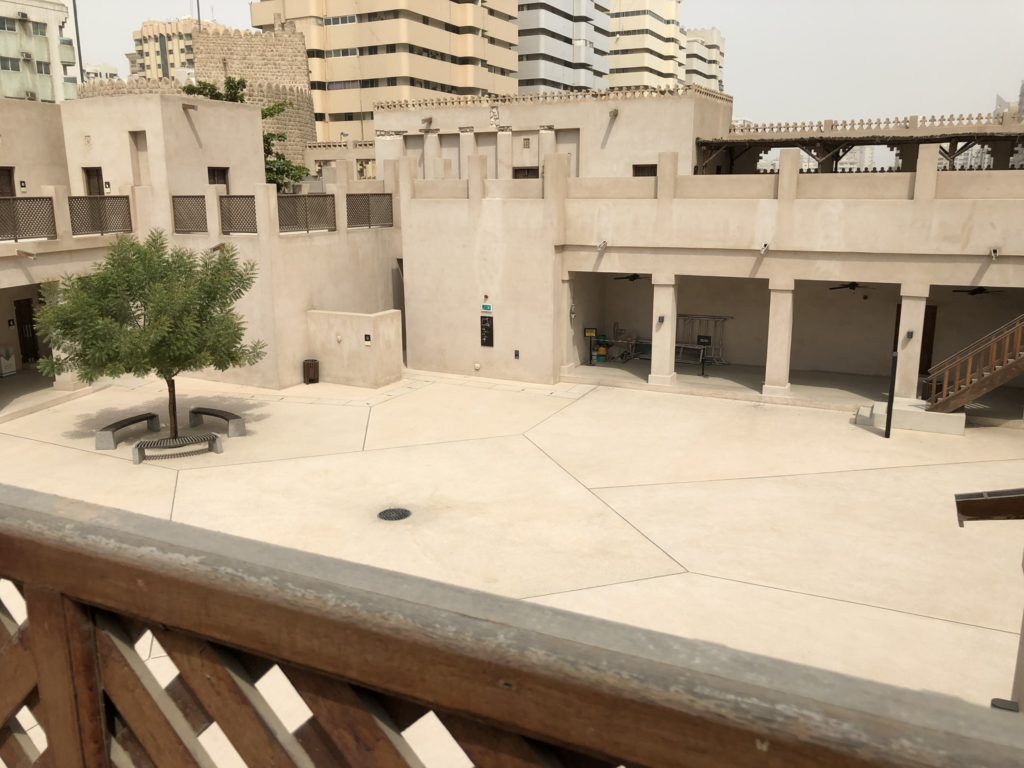
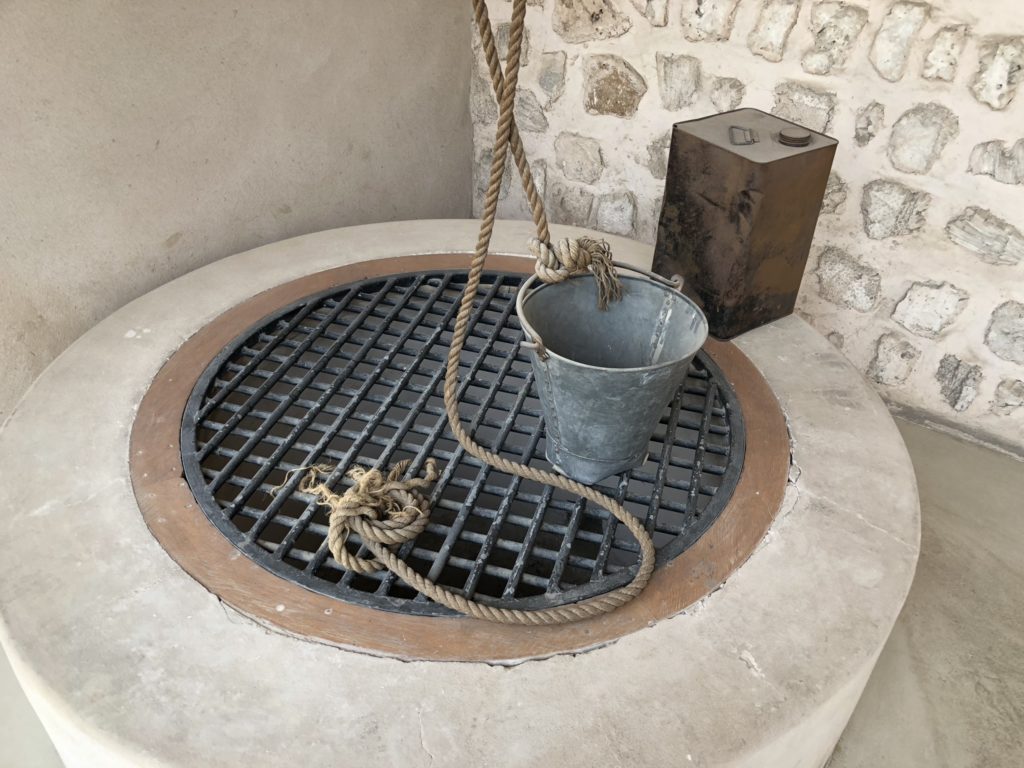
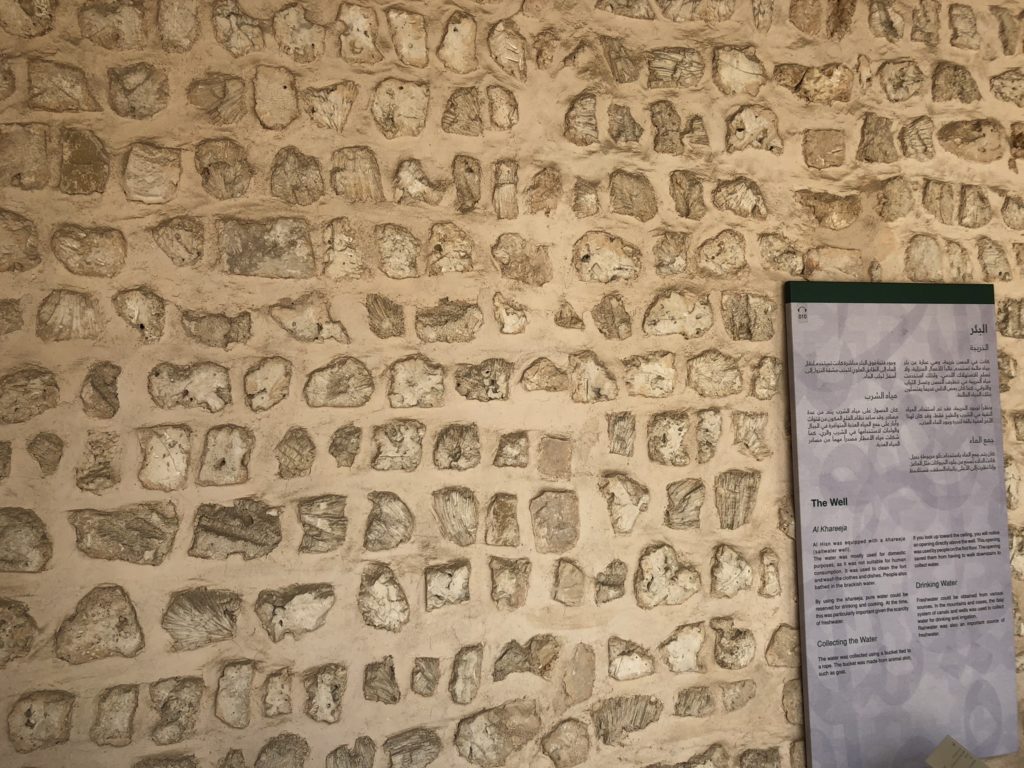
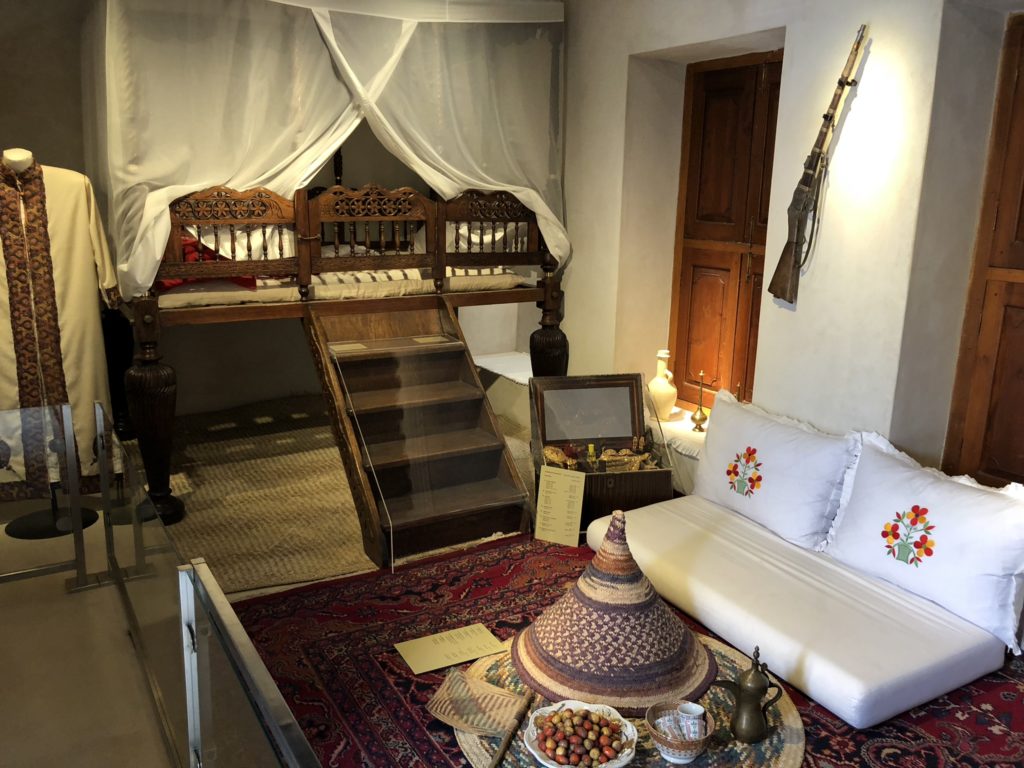
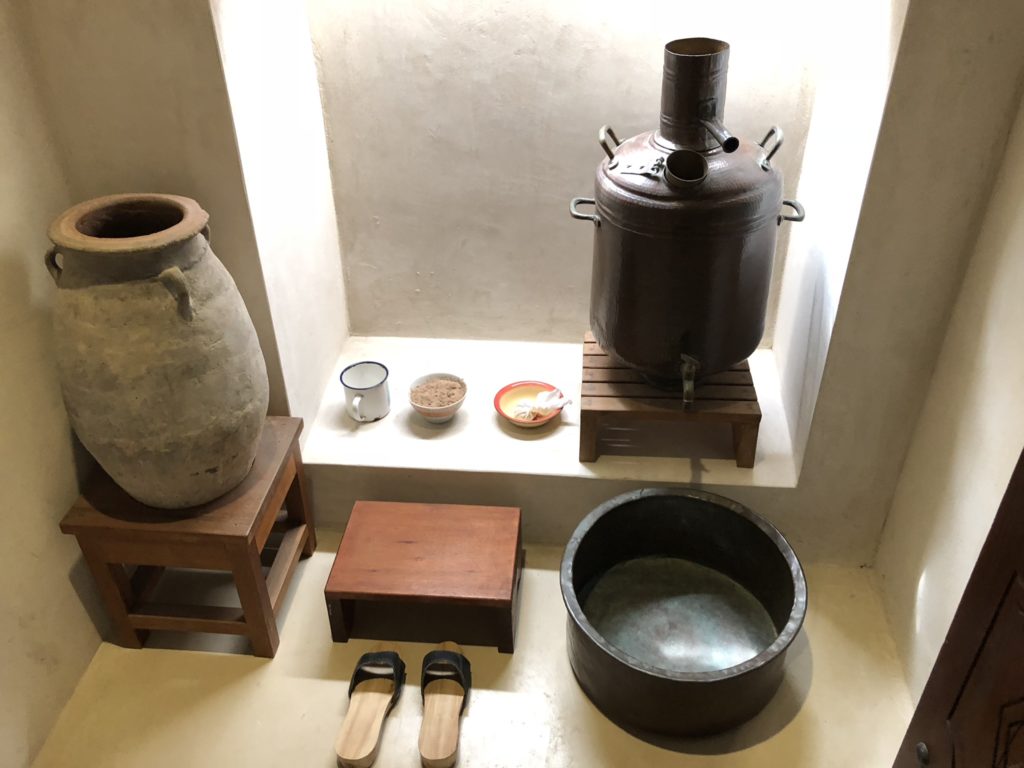
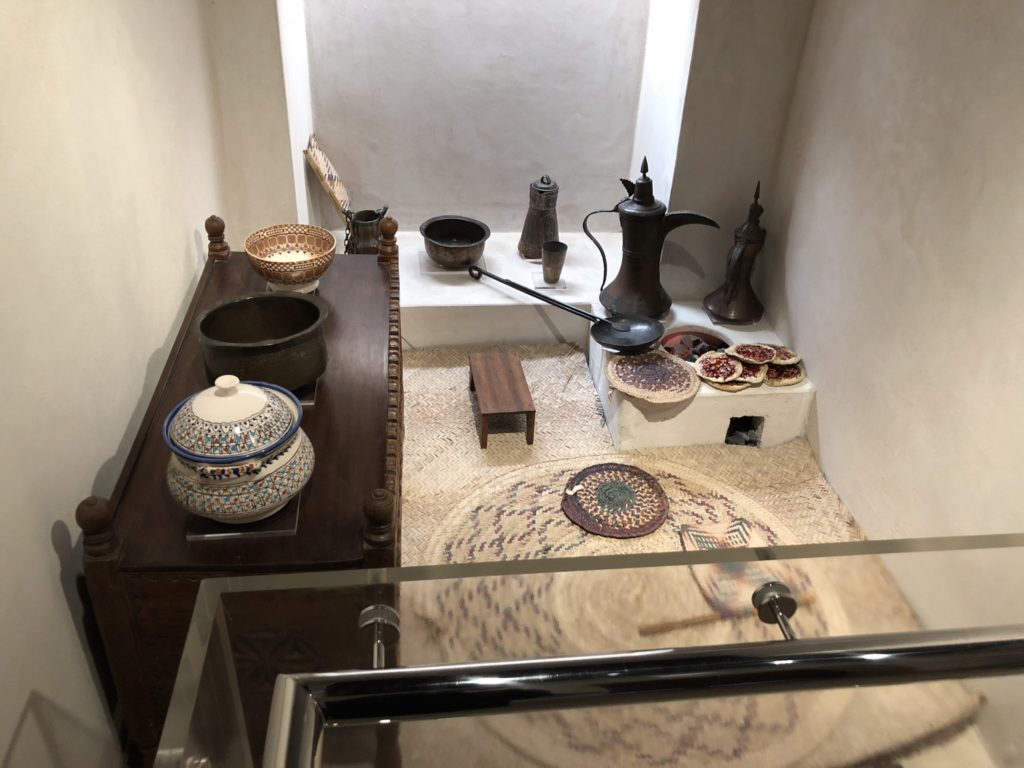
A very simple place, isn’t it? Today, even normal people have fancier homes. Yet, this is how the rulers of the past lived.
Here’s the home of the then ruler of this region:
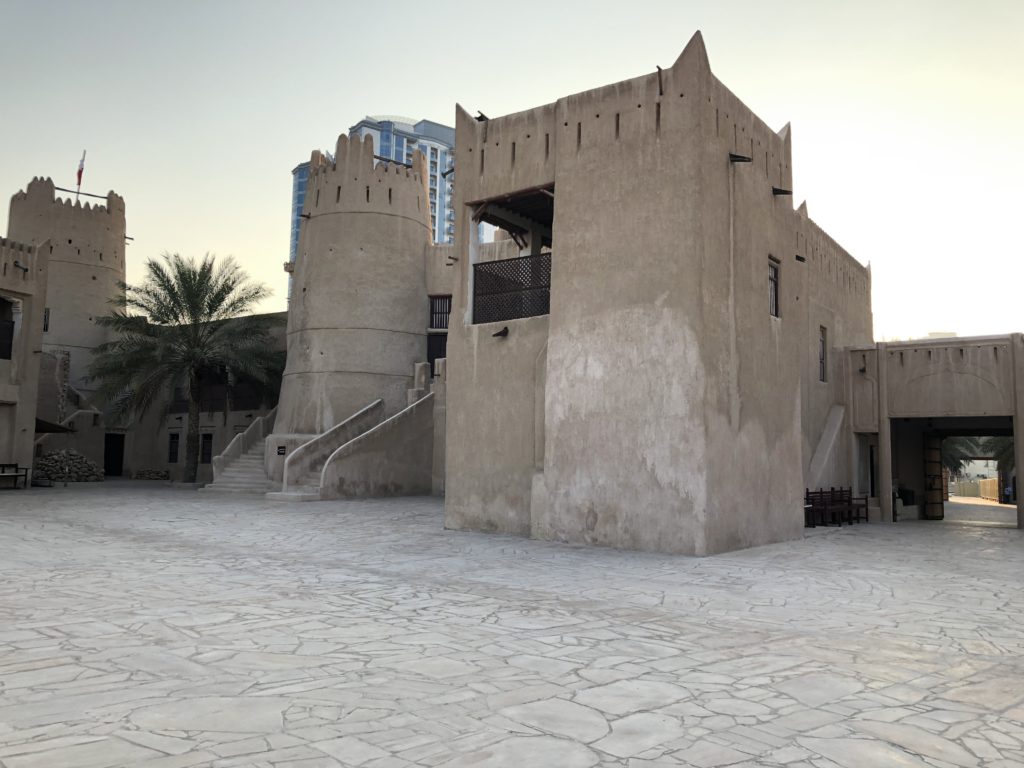
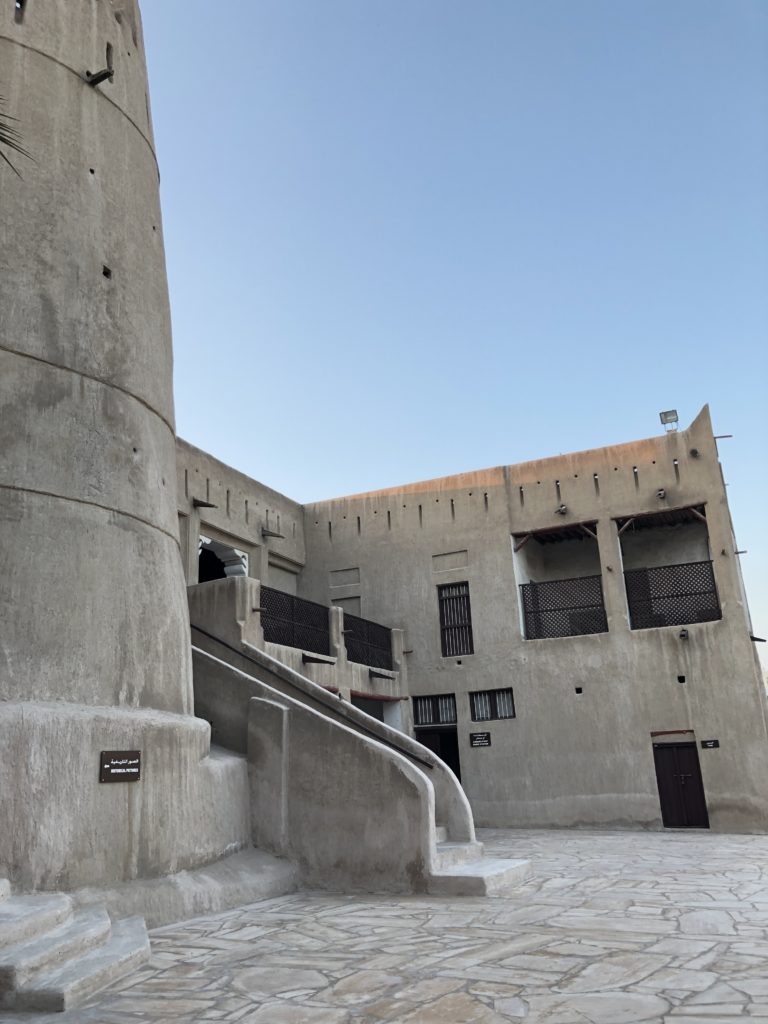
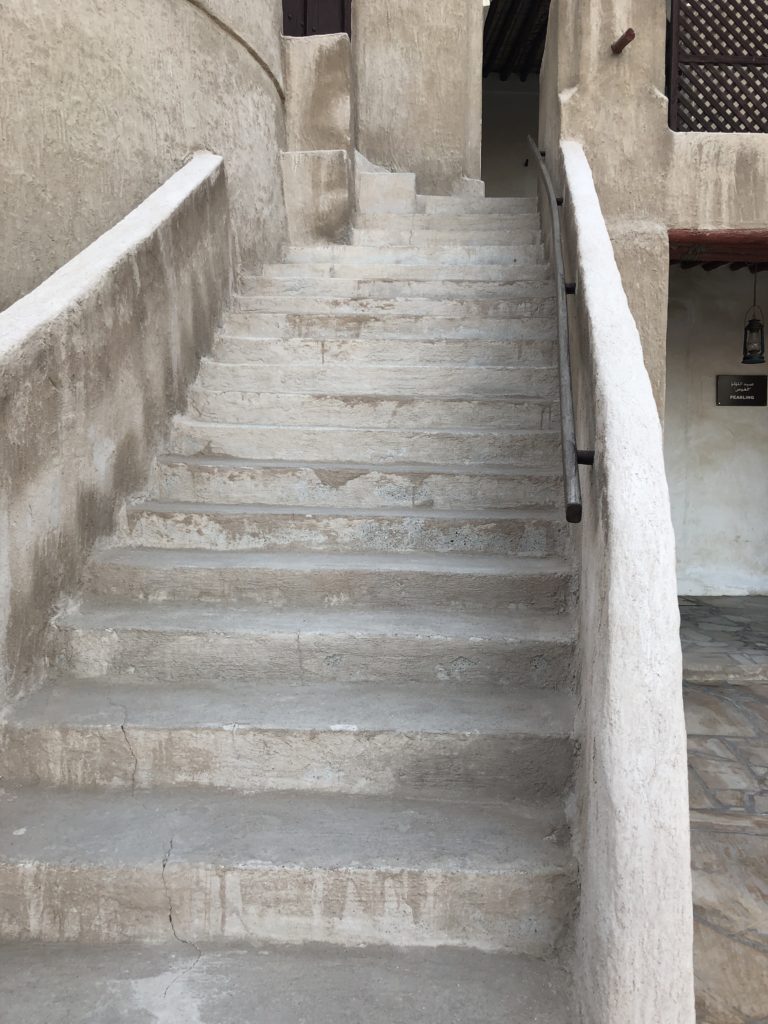
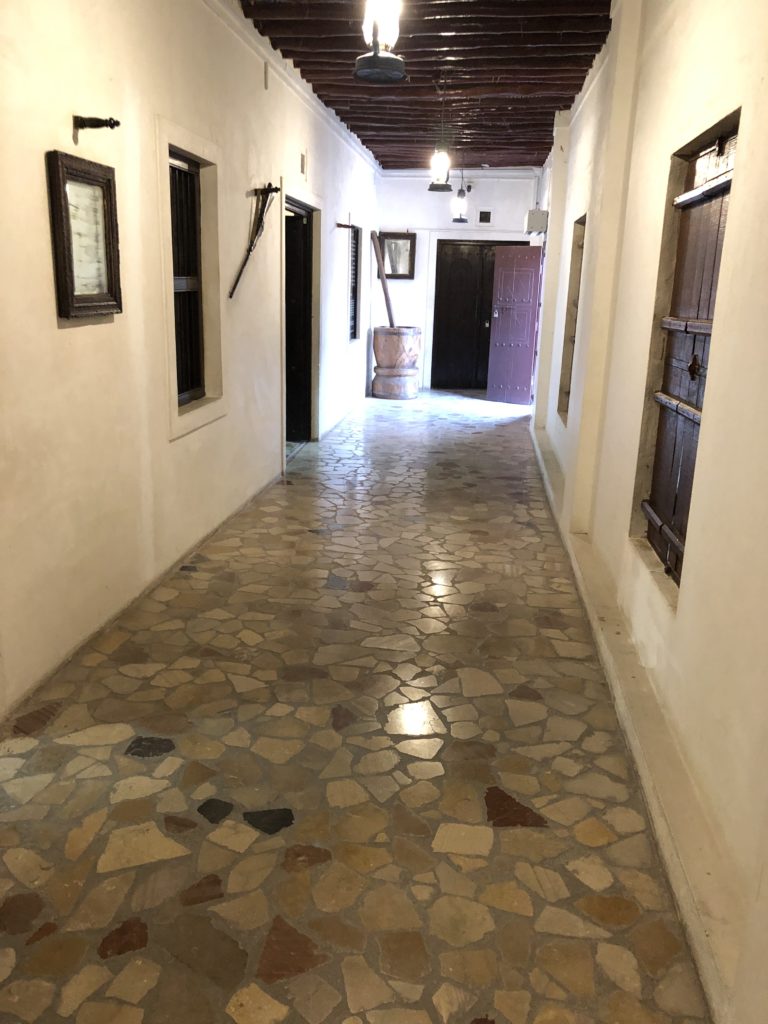
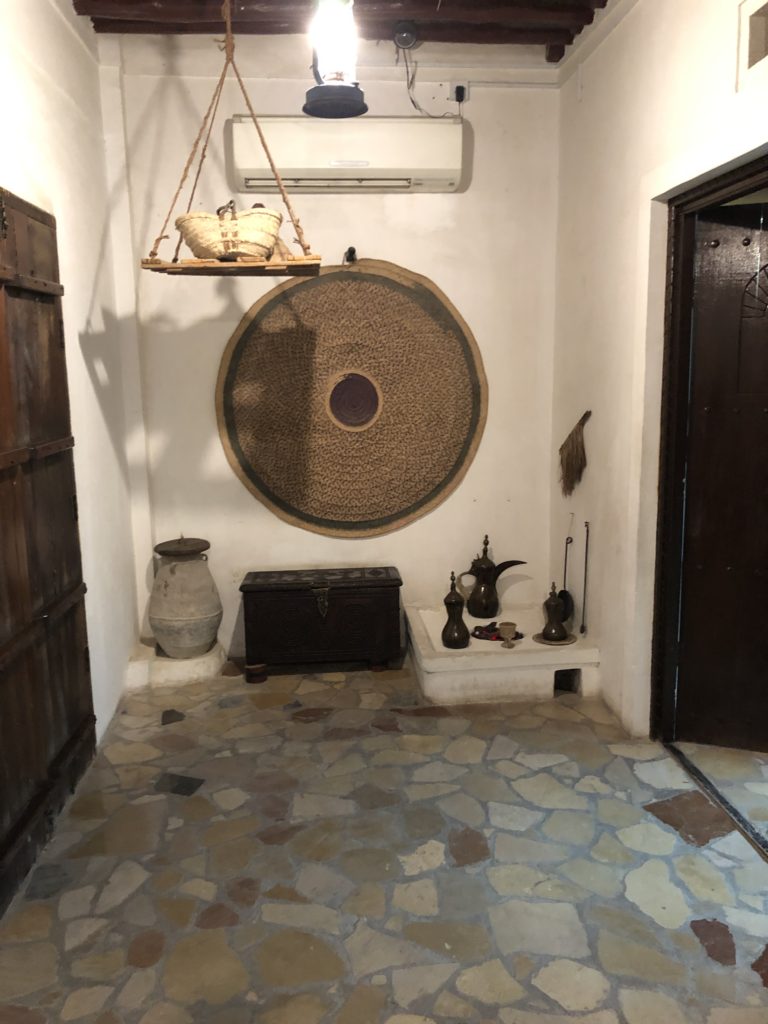
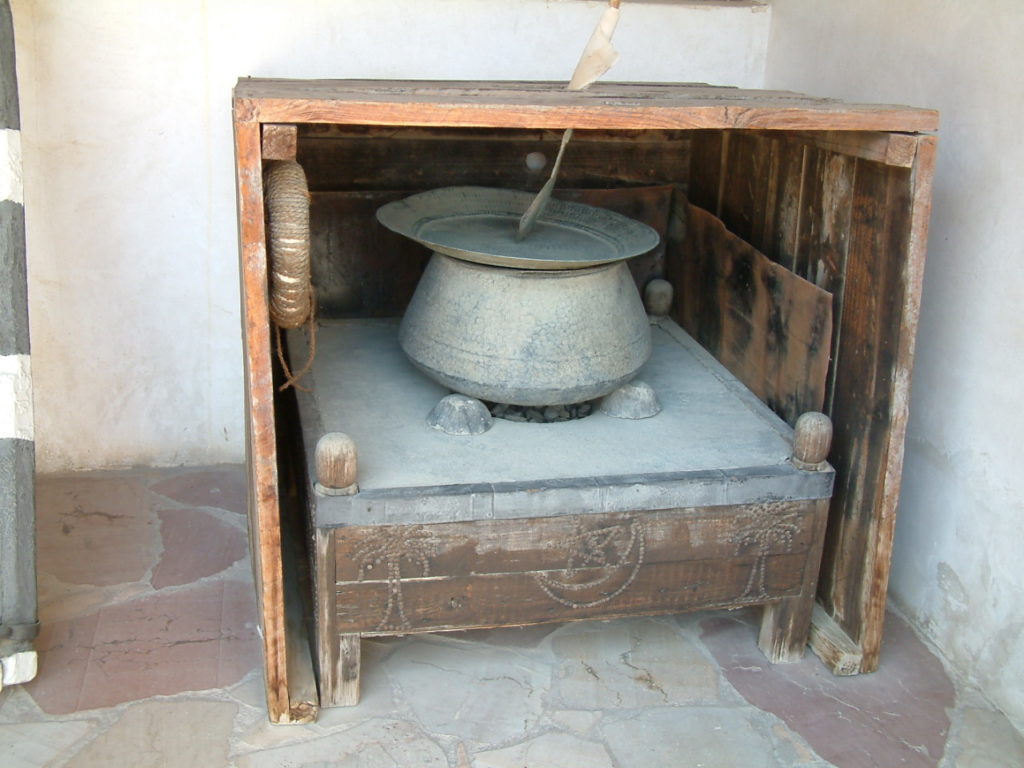
This is a “palace” of the past yet it is so simple.
Here’s the summer home of the then ruler of this place:
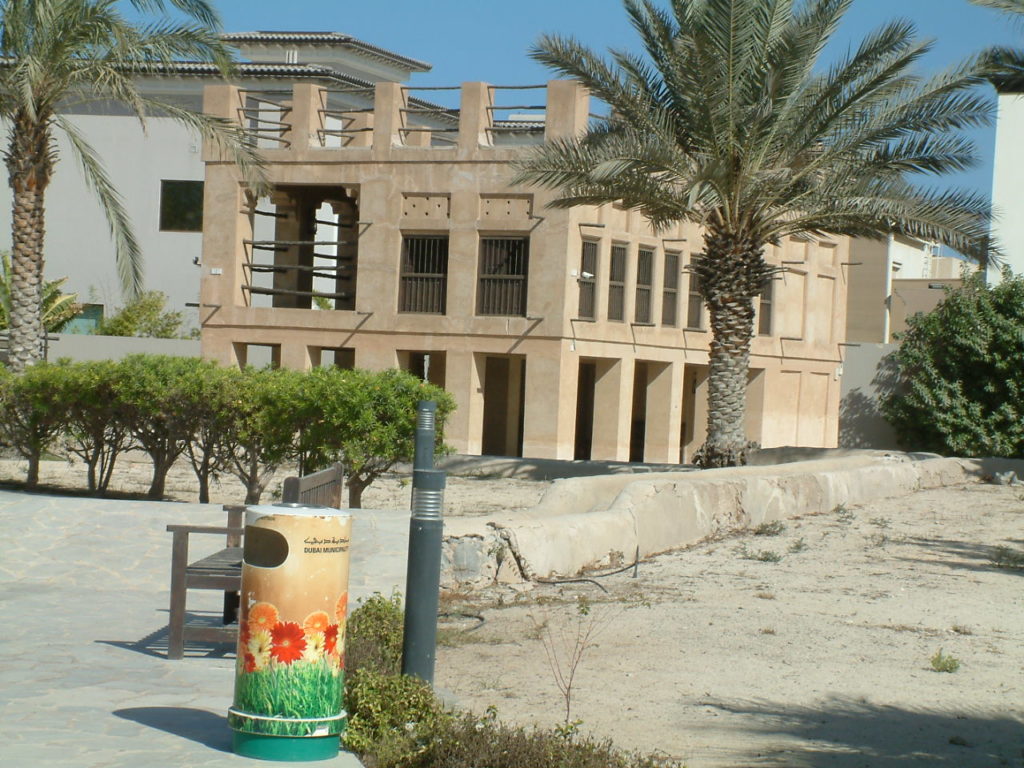
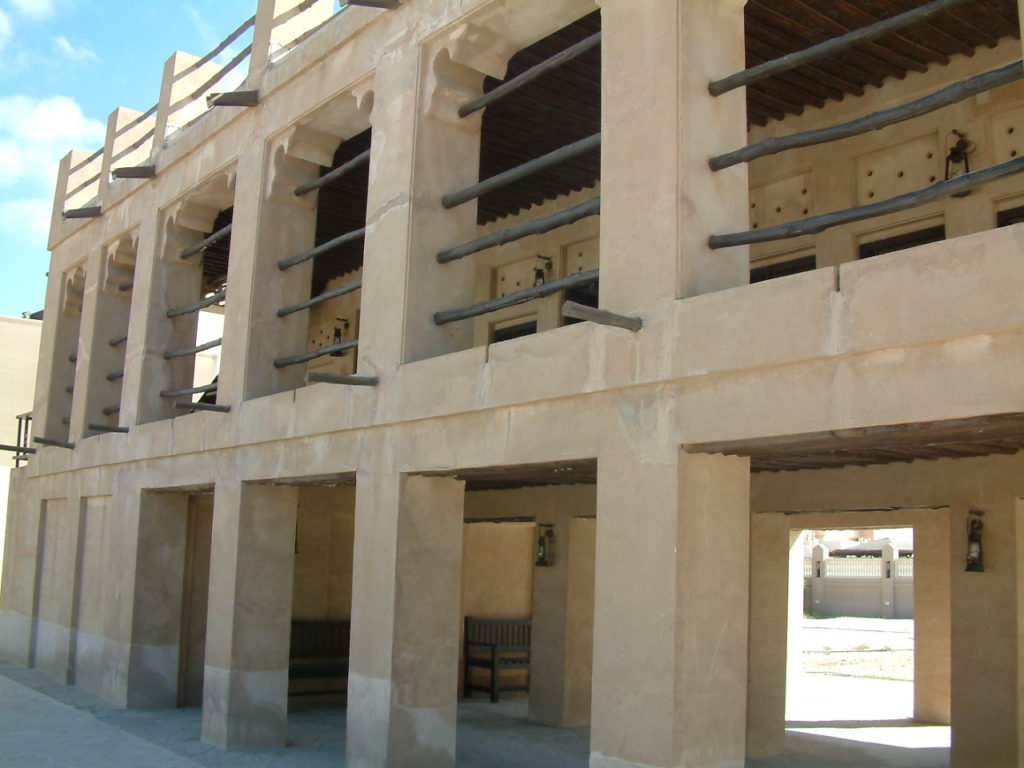
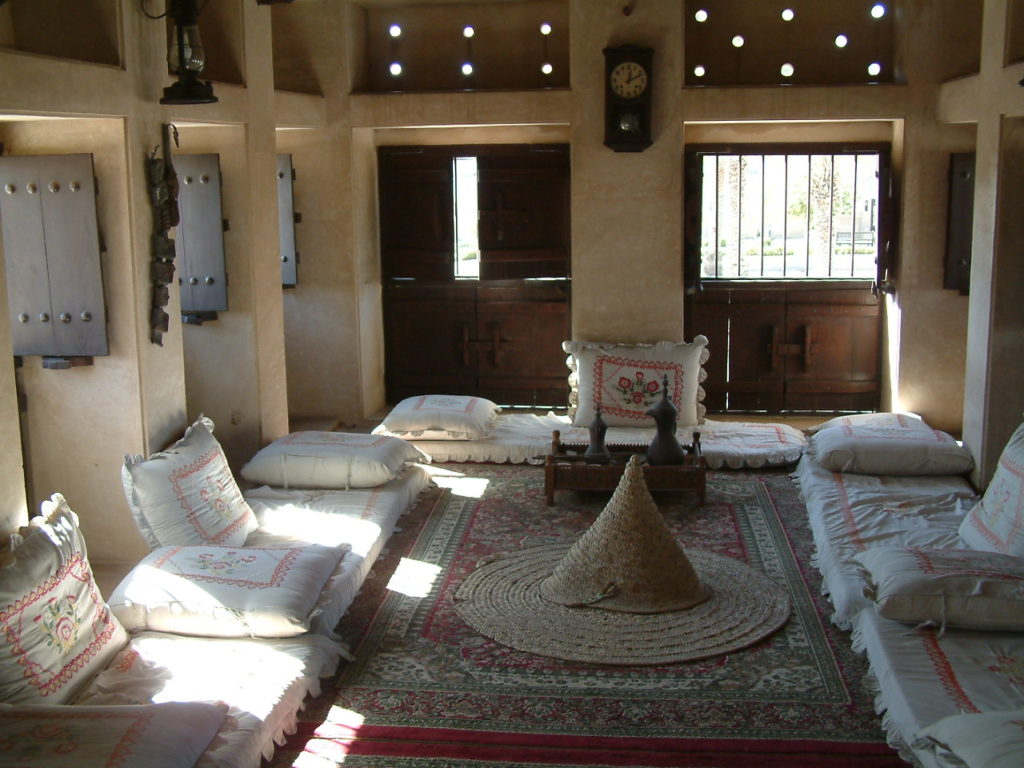
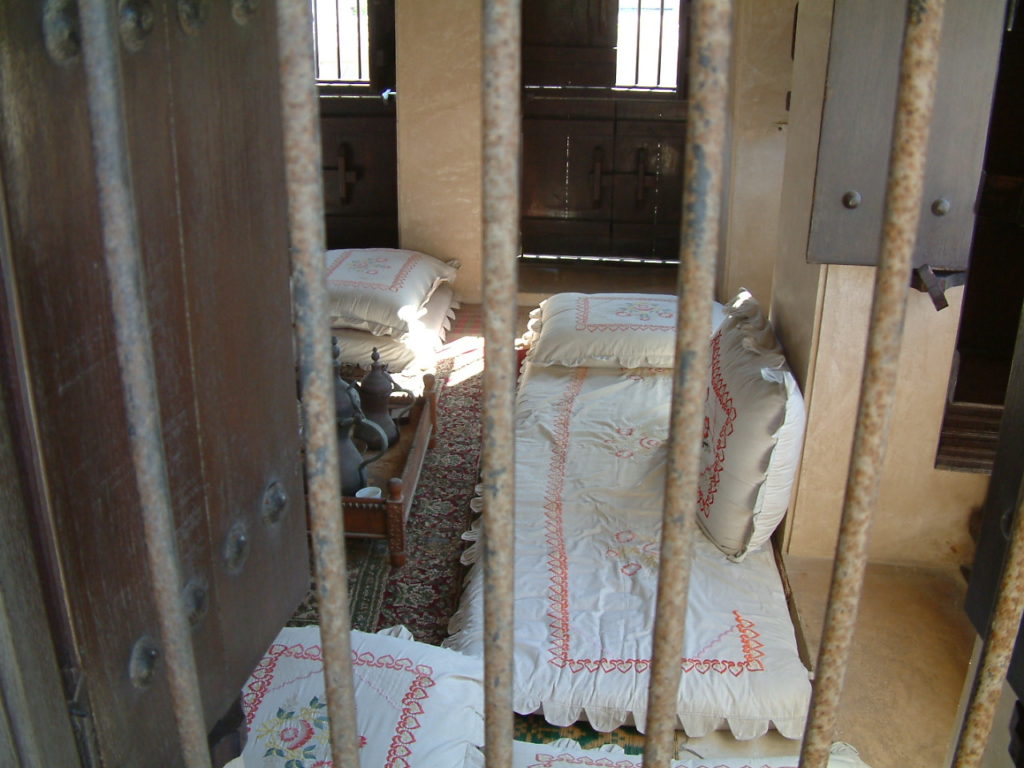
If a poor person was given this home today, they would probably start crying because they would have hoped for a larger home. Yet it was enough for a ruler of the past, subhan Allah.
Here’s an old home (of a “normal” person, I’m assuming) that now houses an government department:
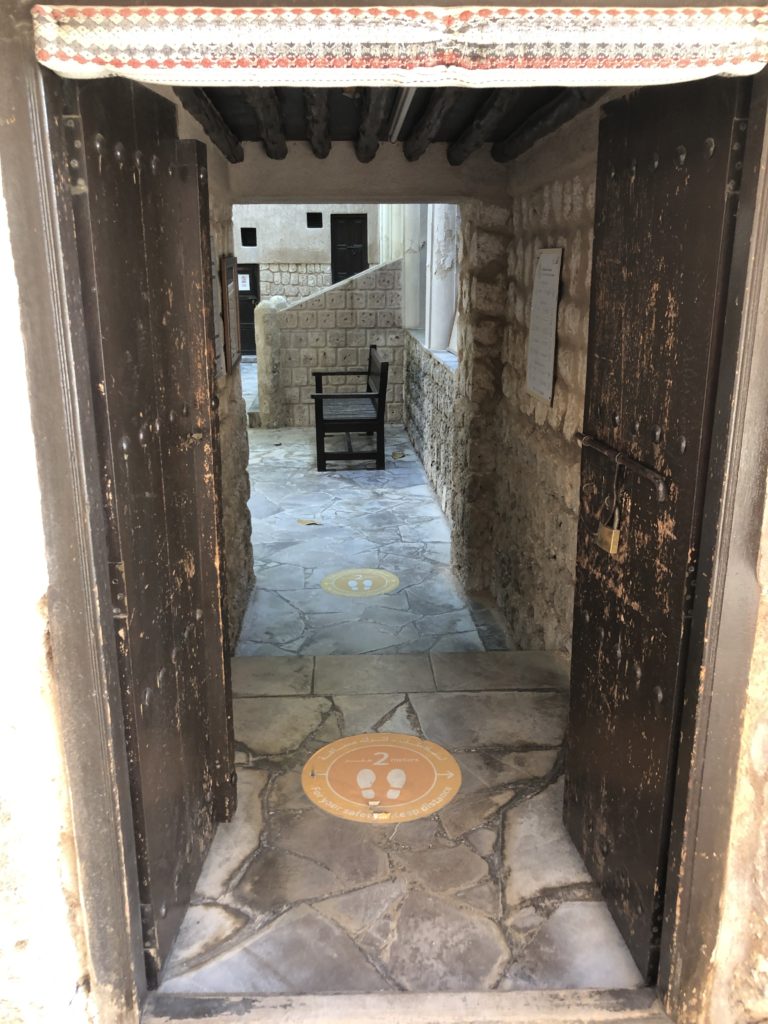
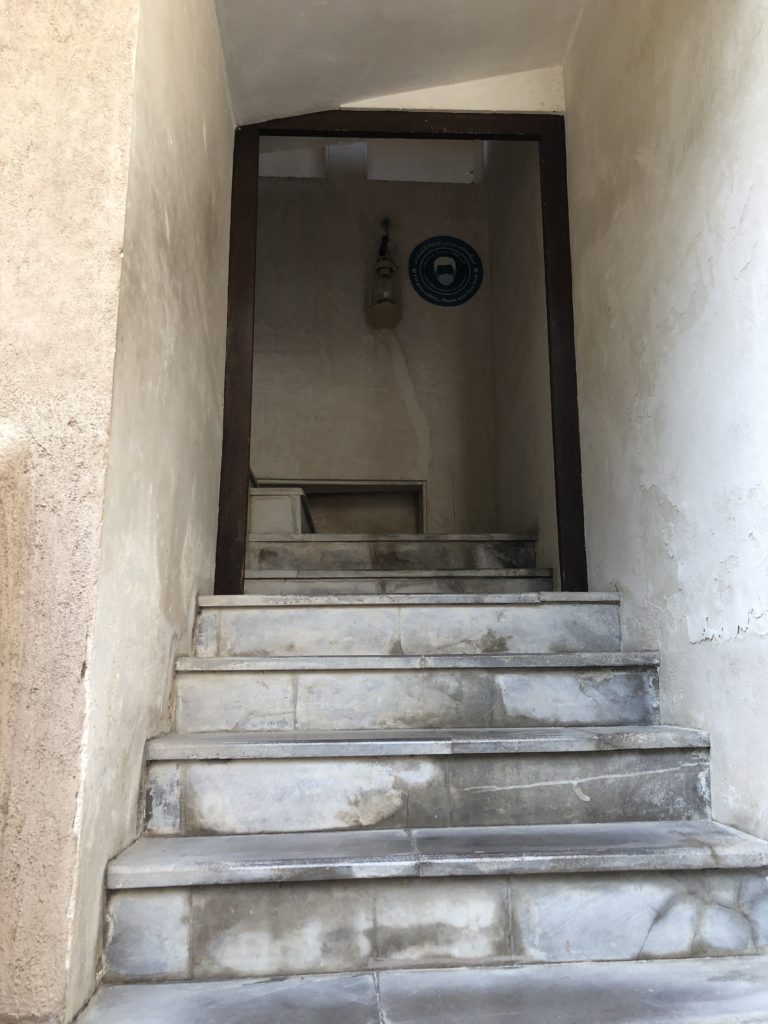
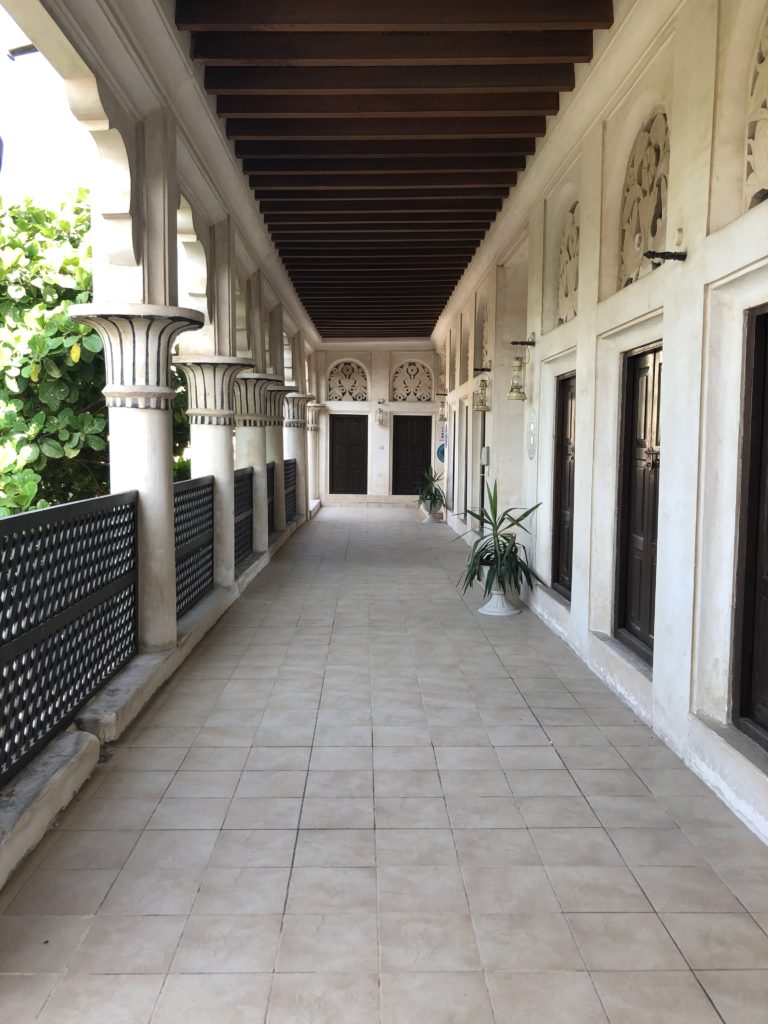
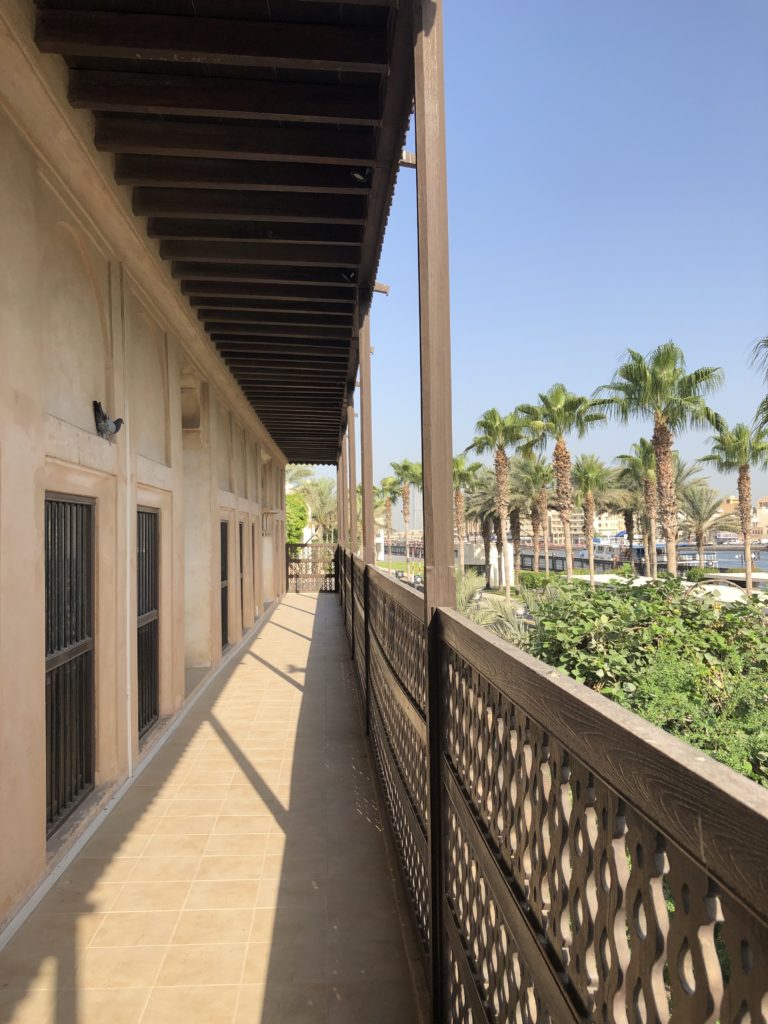
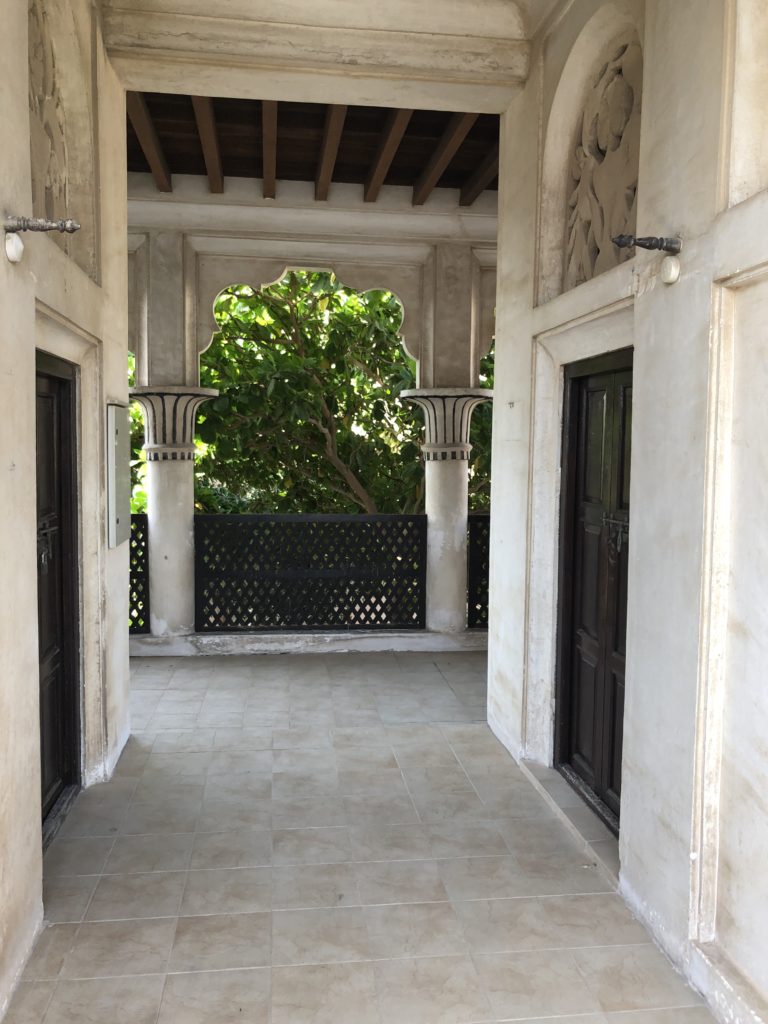
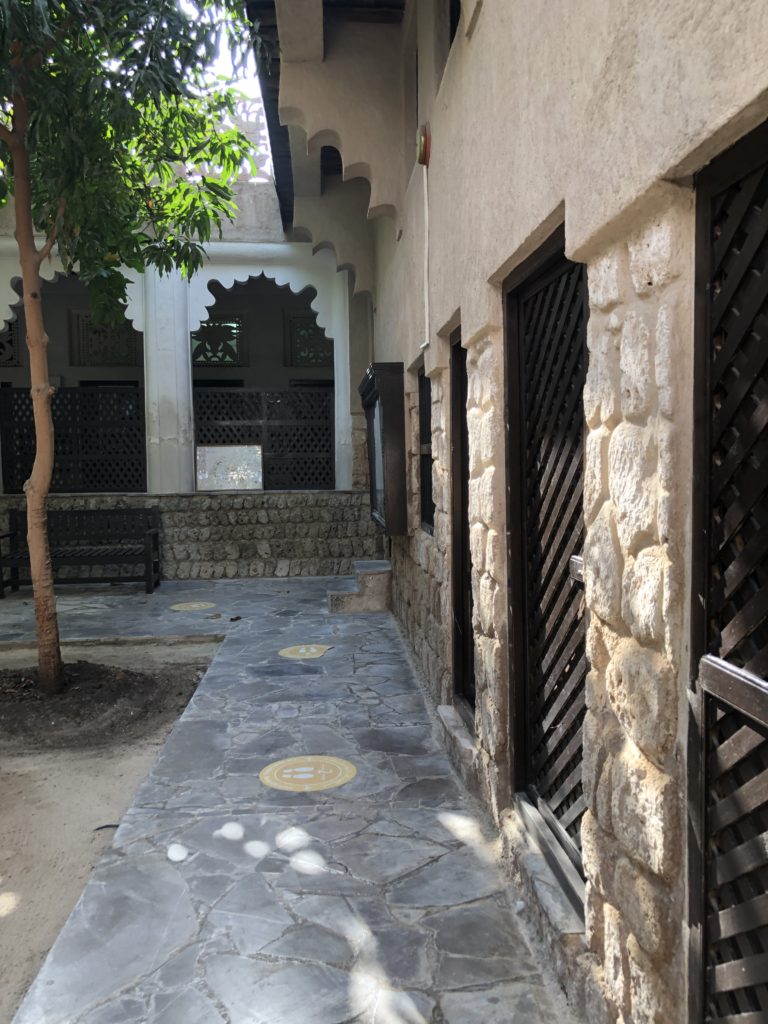
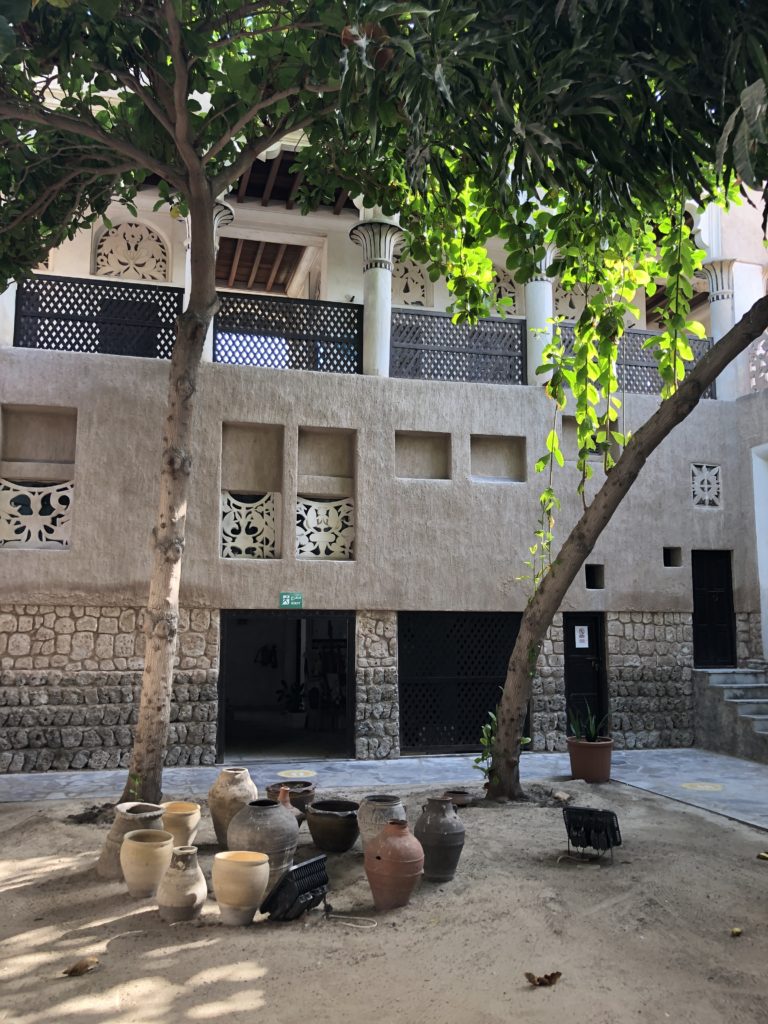
A beautiful home but a very, very simple one.
And here’s a small museum that shows us what a traditional home used to look like in this land (in the not so distant past):
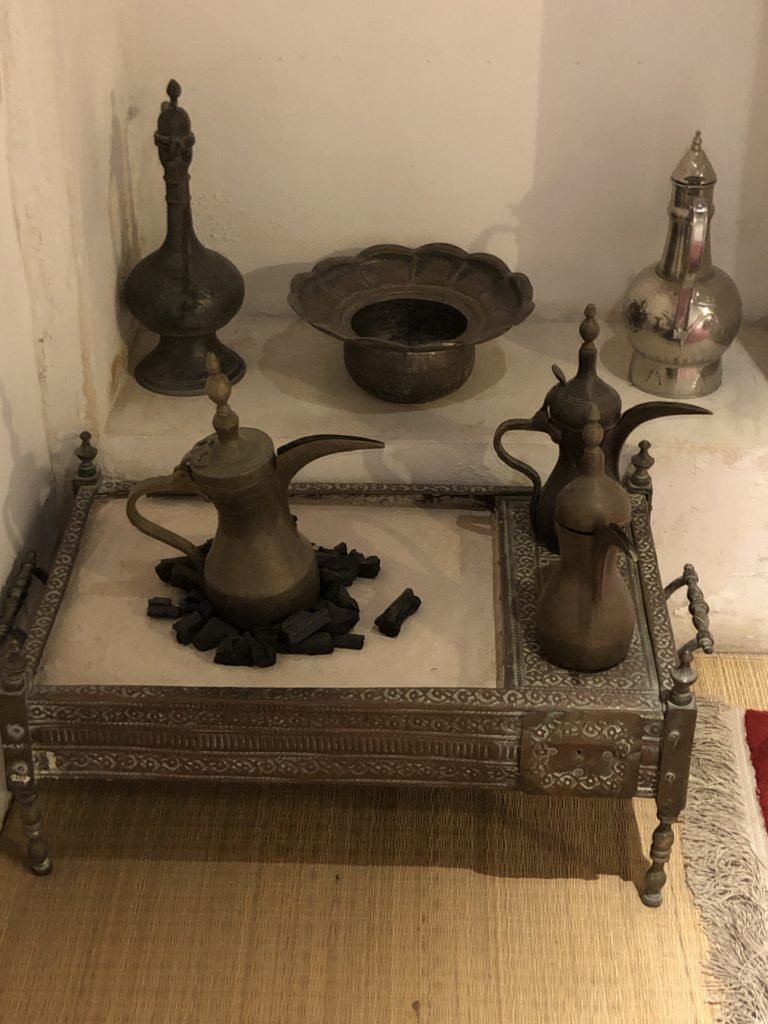
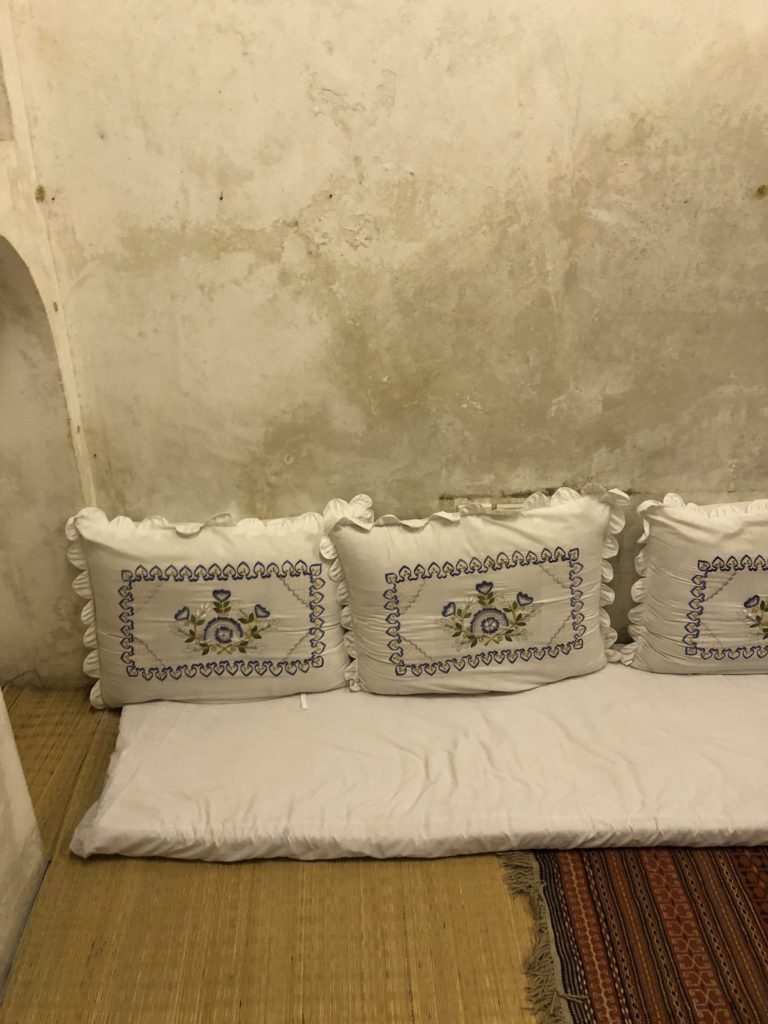
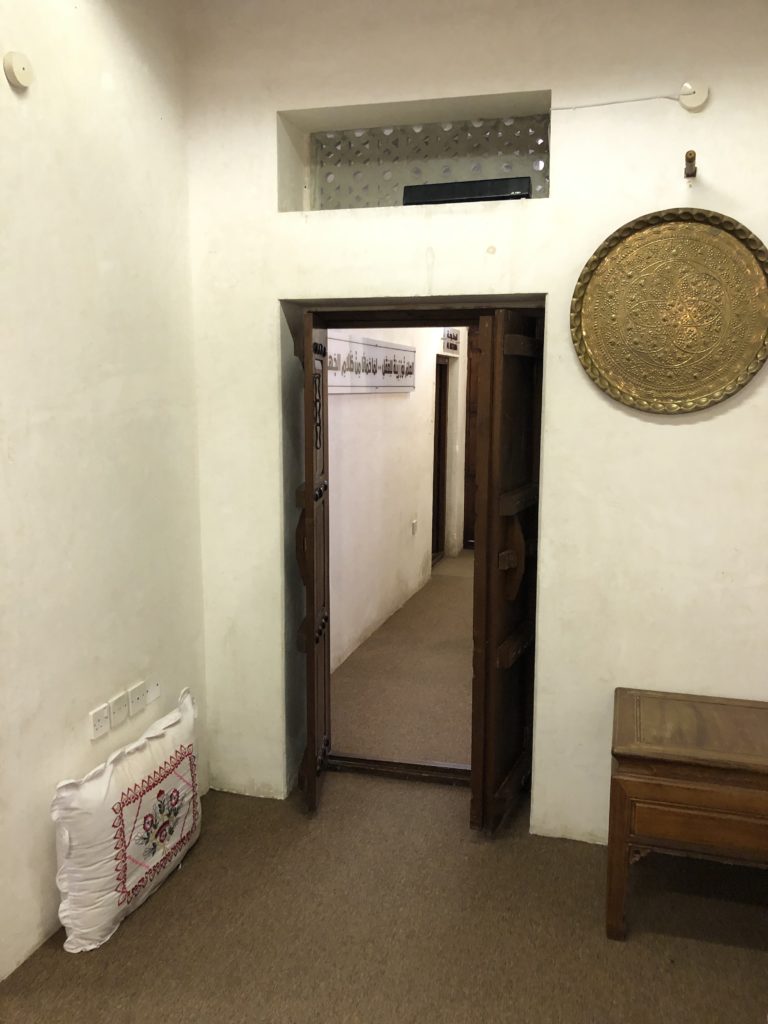
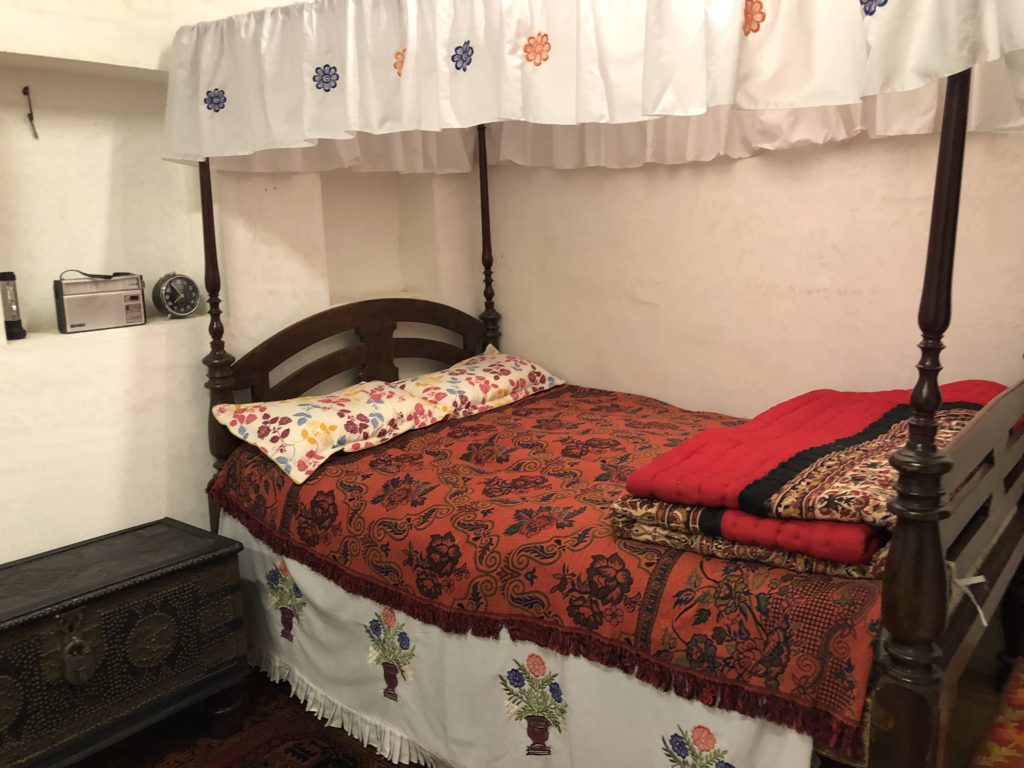
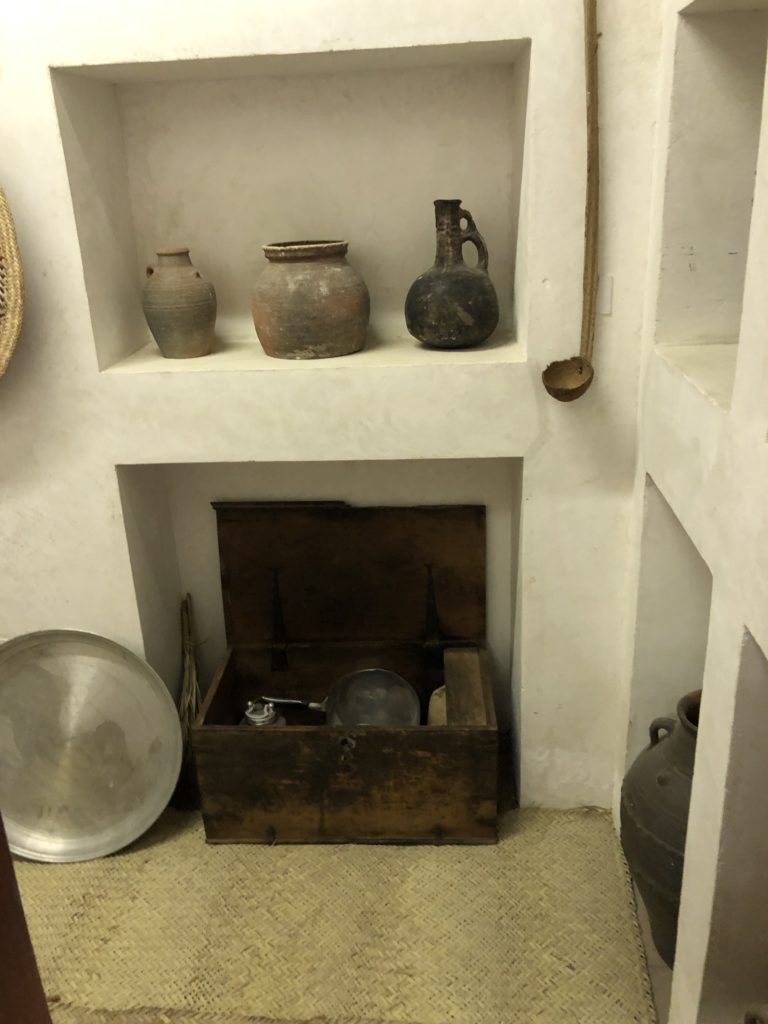
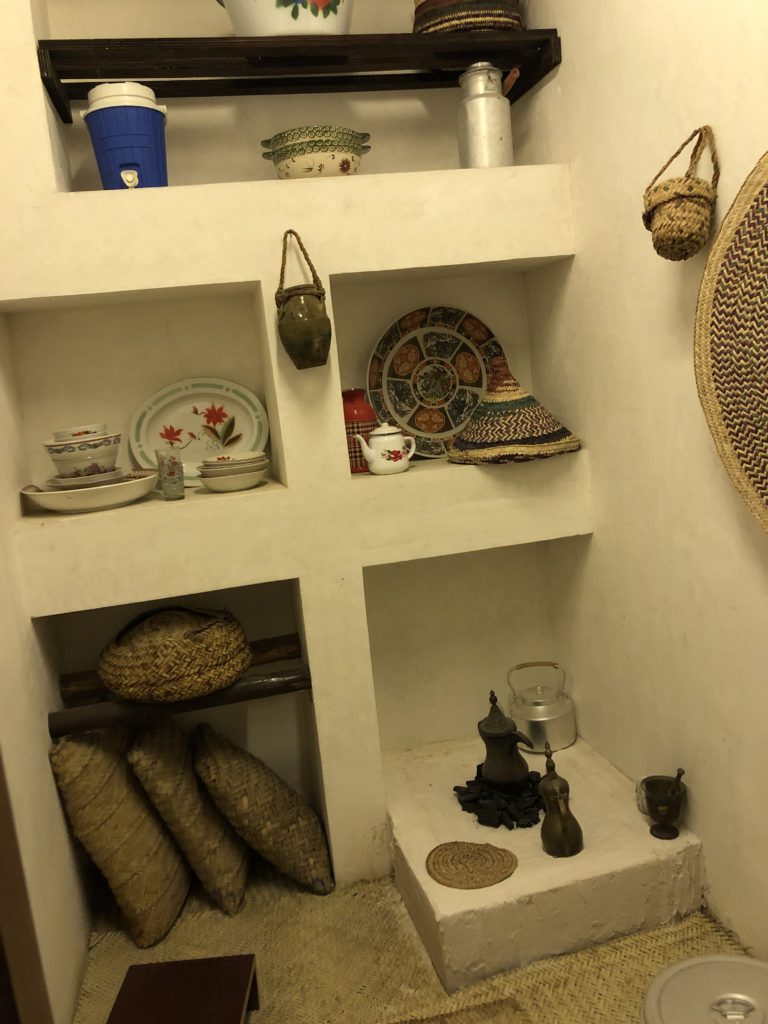
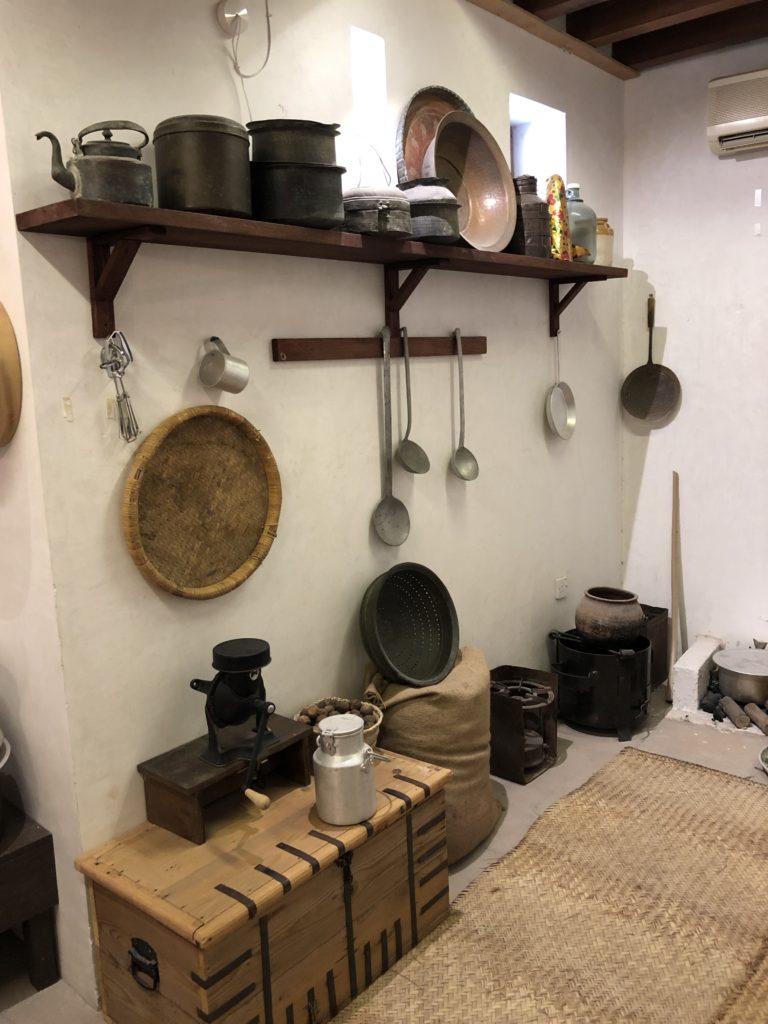
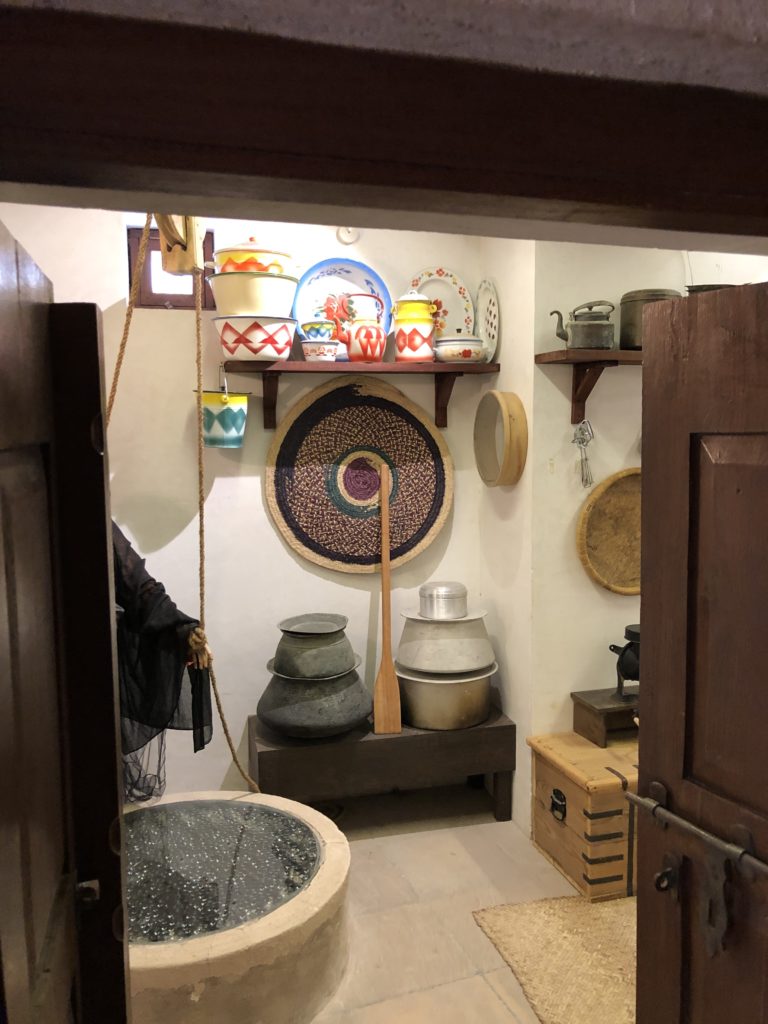
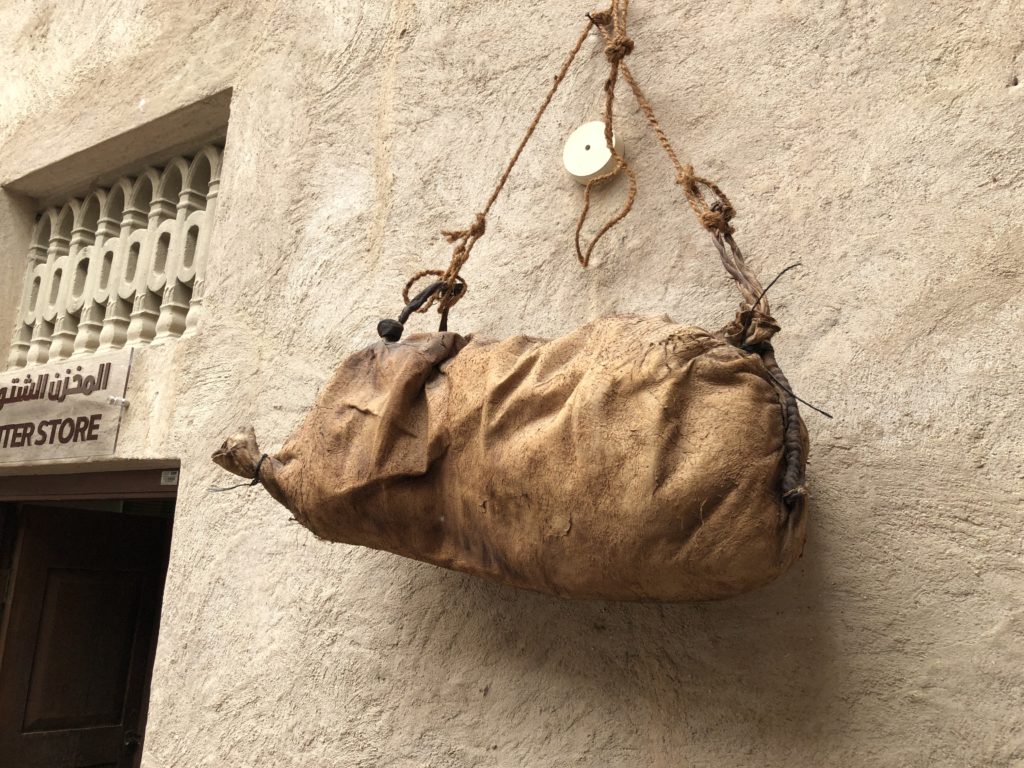
A very simple life indeed.
Sadly, long gone are the days where people lived like this. In today’s time, homes have become far more dazzling. As the Prophet (sallallahu alaihi wasallam) mentioned in the hadeeth above, people have indeed started adorning and beautifying their homes.
Let’s look at some of today’s glamorous homes:
[Please note that the following set of images along with the header image were NOT taken by me, and are from the Internet. All the other posts published so far on this website have contained images solely from the Internet. However, this is the first post which contains my own photography so I’m compelled to differentiate.]

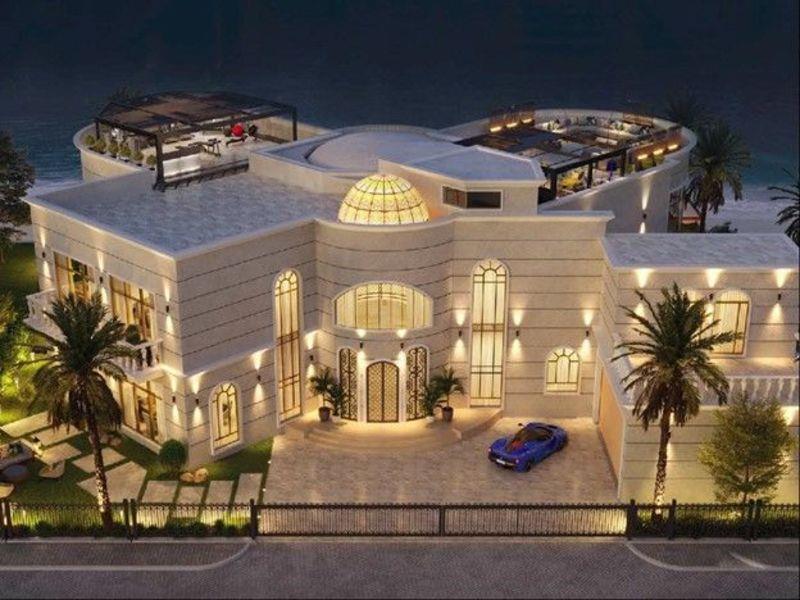

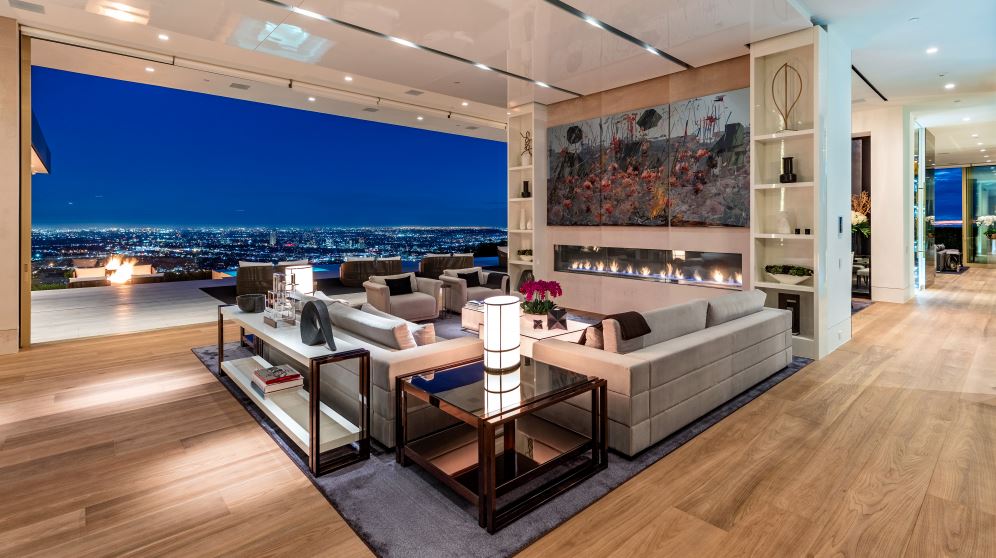


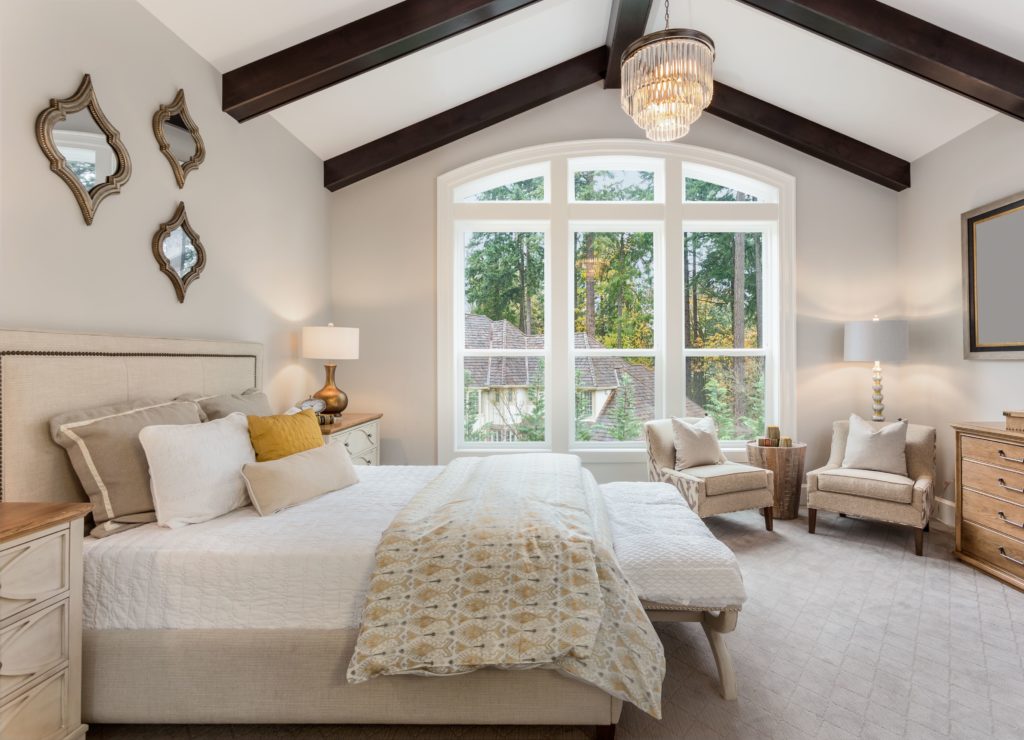



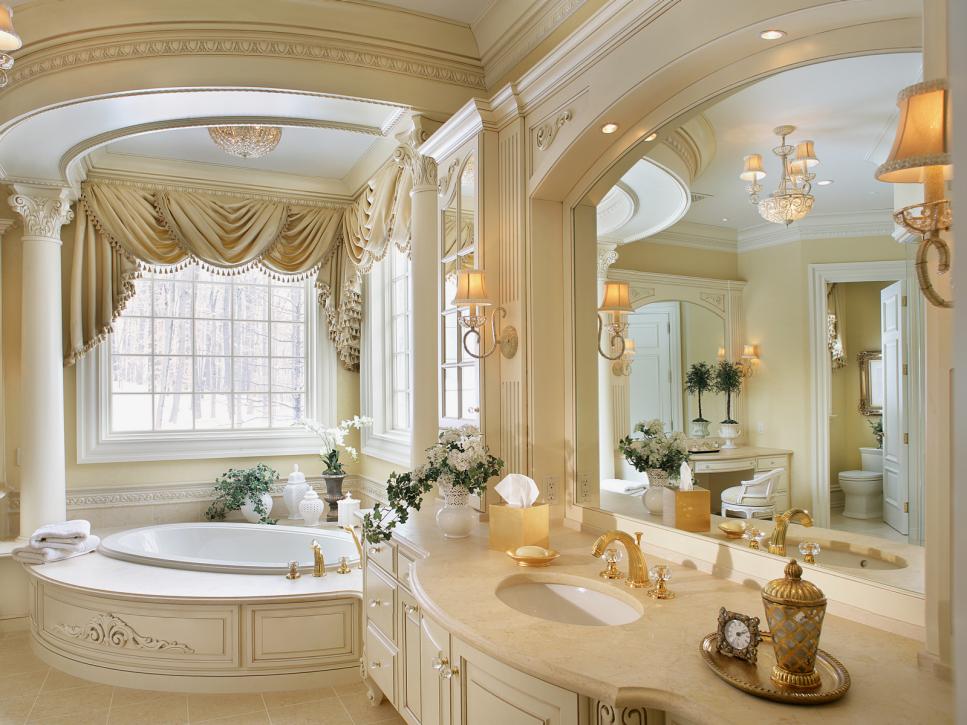


There are millions of more examples of over decorated homes, all of whom we’d probably swoon over. It’s sad that we don’t even realise that our minds are so totally focused on this worldly life.
We all need to ask ourselves about our own homes. Are they also beautified? Or are they simple homes?
A Summary of the Signs
Two weeks ago, I was headed to the library to finish working on this post. Instead, for some reason, I ended up driving to the archeological site in that area – a place that I had been wanting to visit in the past but had no intention of going to that day.
The site is from the Abbasid era (dating back to the 9th century) so it’s from the time of an Islamic Caliphate (a real one, not a fake one like Daesh) when the Shariah (Islamic law) was properly applied i.e. this is my type of place from my type of time (because it applied the truth i.e. the Islamic Shariah).
So what did I discover? Well, something about all five signs, it would appear.
[Please note that the following photos were taken by me.]
1. The tall buildings
That was the first sign in this series and that was the first thing I noticed when I came to the site (they are really hard to miss).
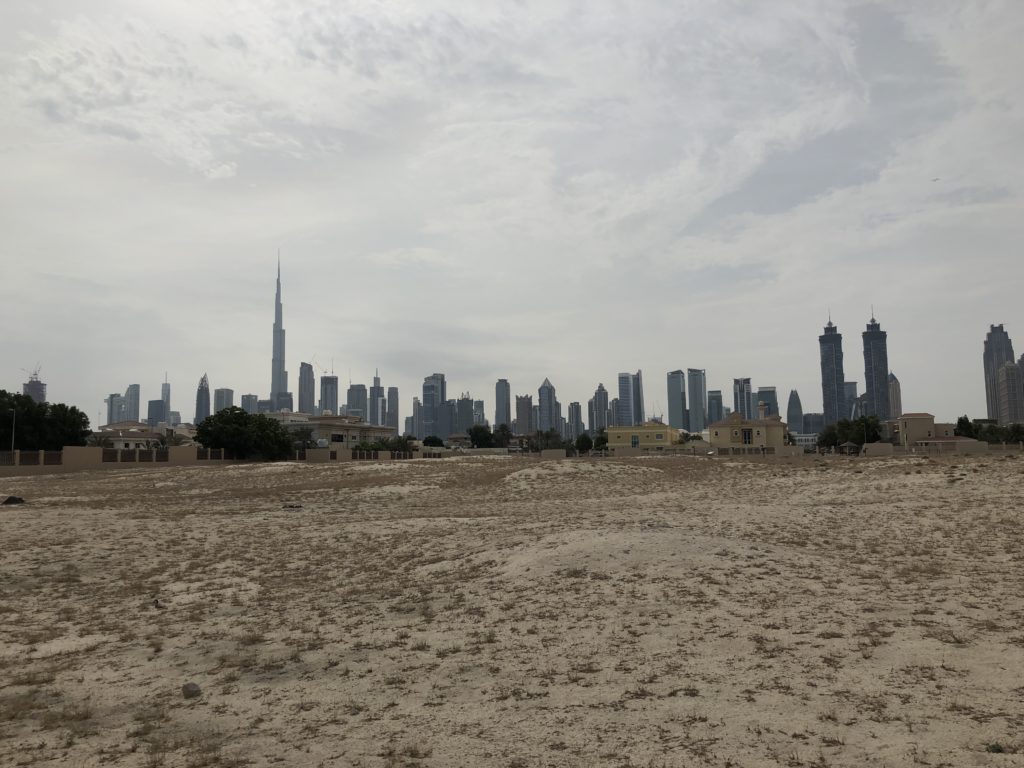
Here you can see the Abbasid era building with the “normal sized” buildings behind it, with the skyline right behind that.
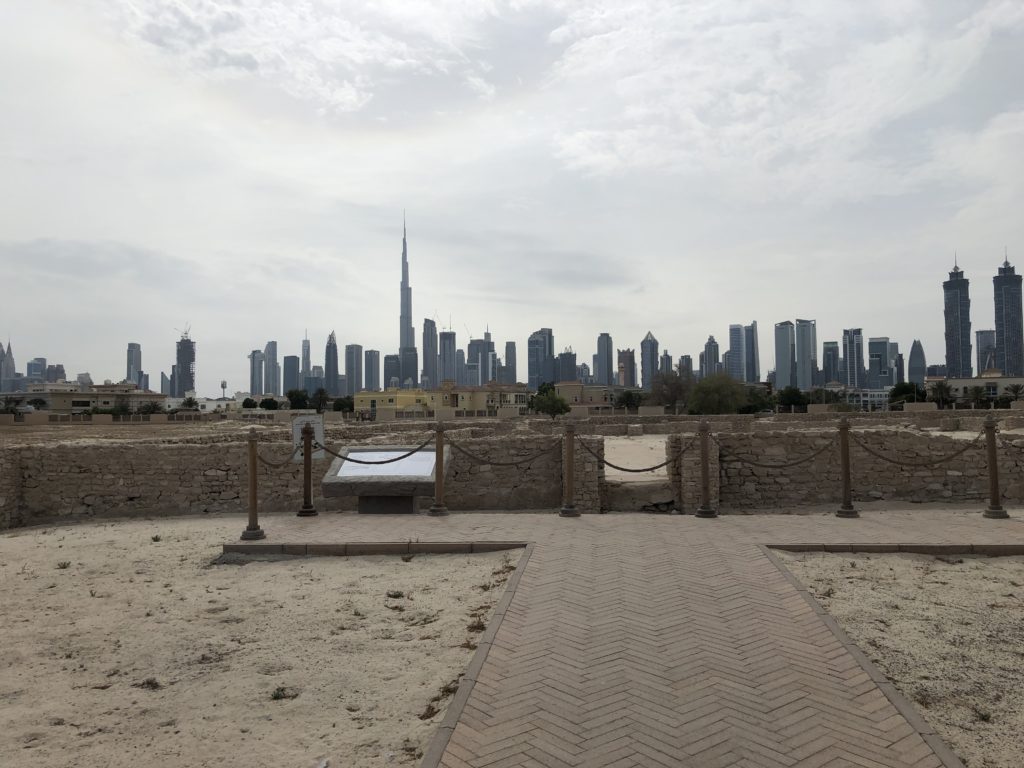
Here’s a closer look at the ancient building. Obviously, only the remains of it were excavated but the actual building would obviously have been higher.
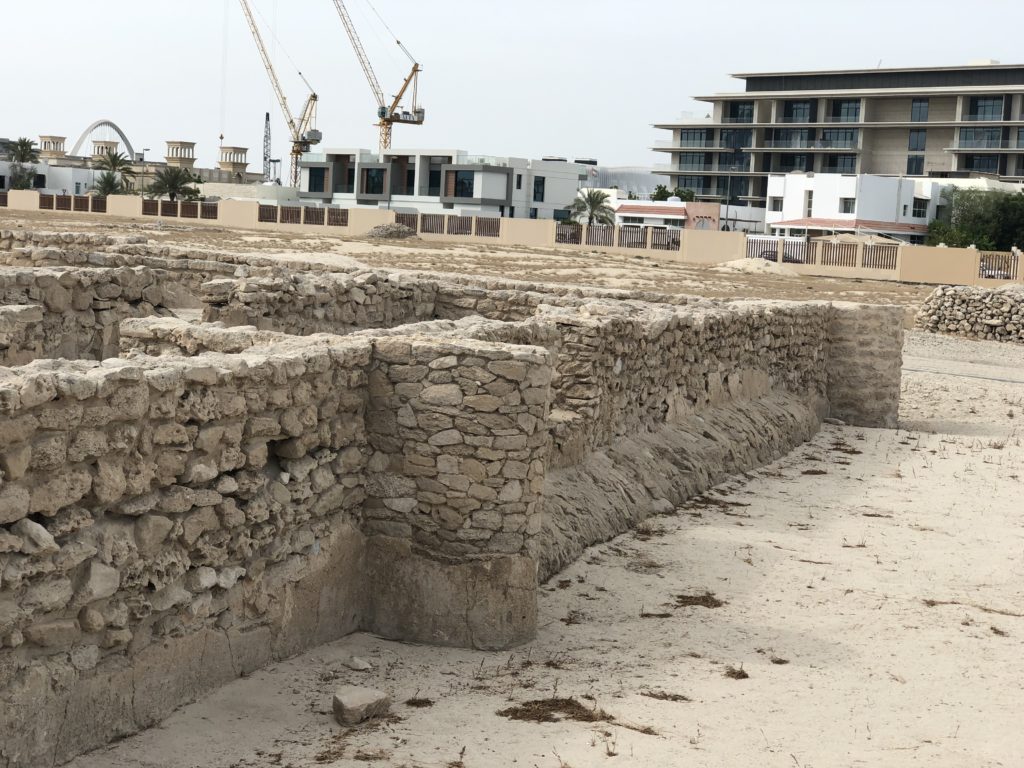
These photos make it clear that there is no way the Prophet (sallallahu alaihi wasallam) could have known about the occurrence of the tall buildings except through revelation from Allah.
2. Arabia turning green
The site, due to being an archeological dig, is a great place to see Arabia as the sand lot that it used to be.
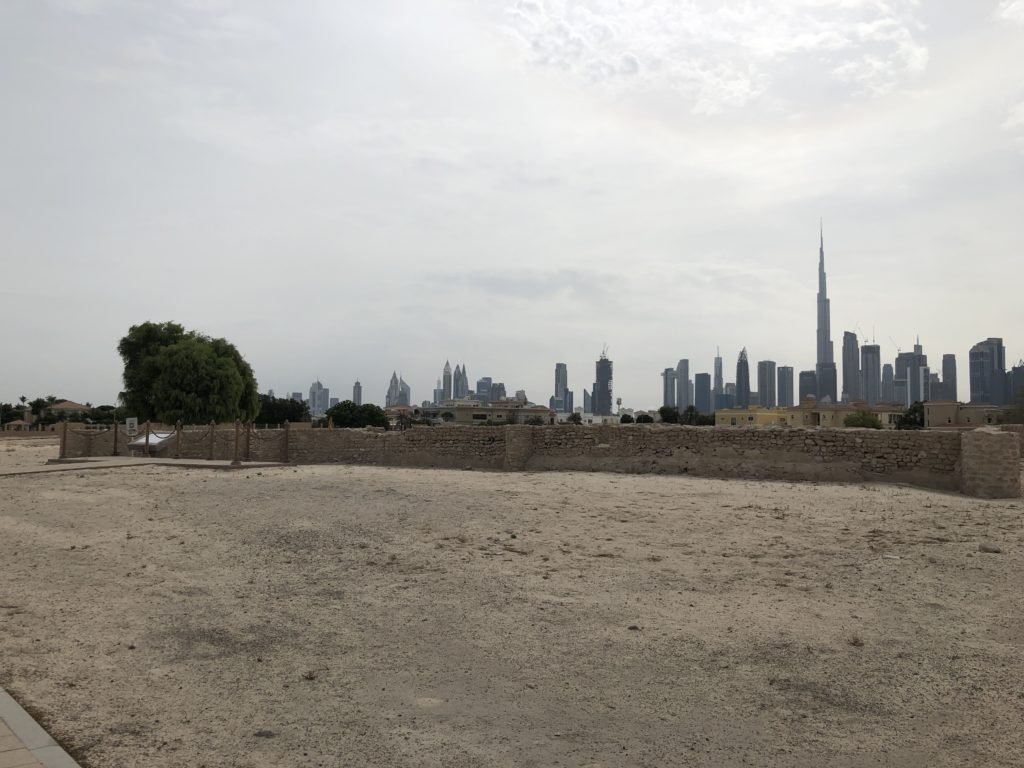
The site itself is a sandy place surrounded by buildings. Ironically, it reminded me of this area when I was living close by aged 3-6 (the only years of my life where I did not live close to where I was born). All I remember from those days was sand, sand and more sand – exactly like the site. The only thing different was the surrounding buildings. This area didn’t have them in those days. However, the sand in the above picture is exactly like that from my childhood – as in pure sand with no greenery sprouting up.
However, you can see the greenery sprouting up in other parts of the site, as the following photos show:
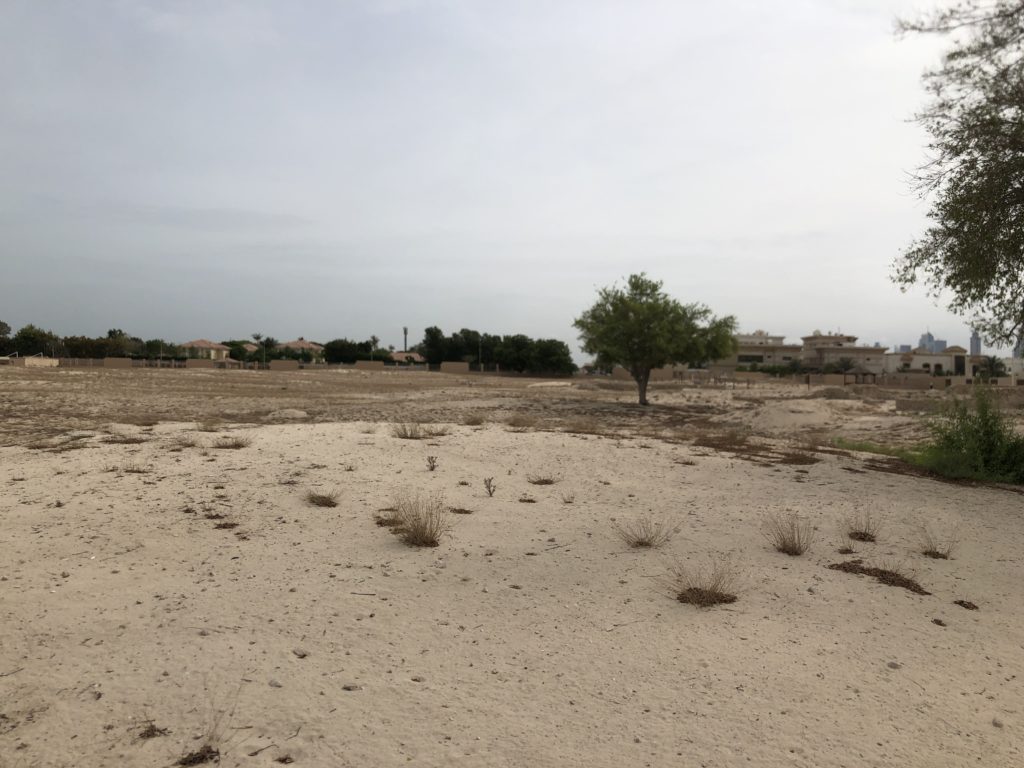
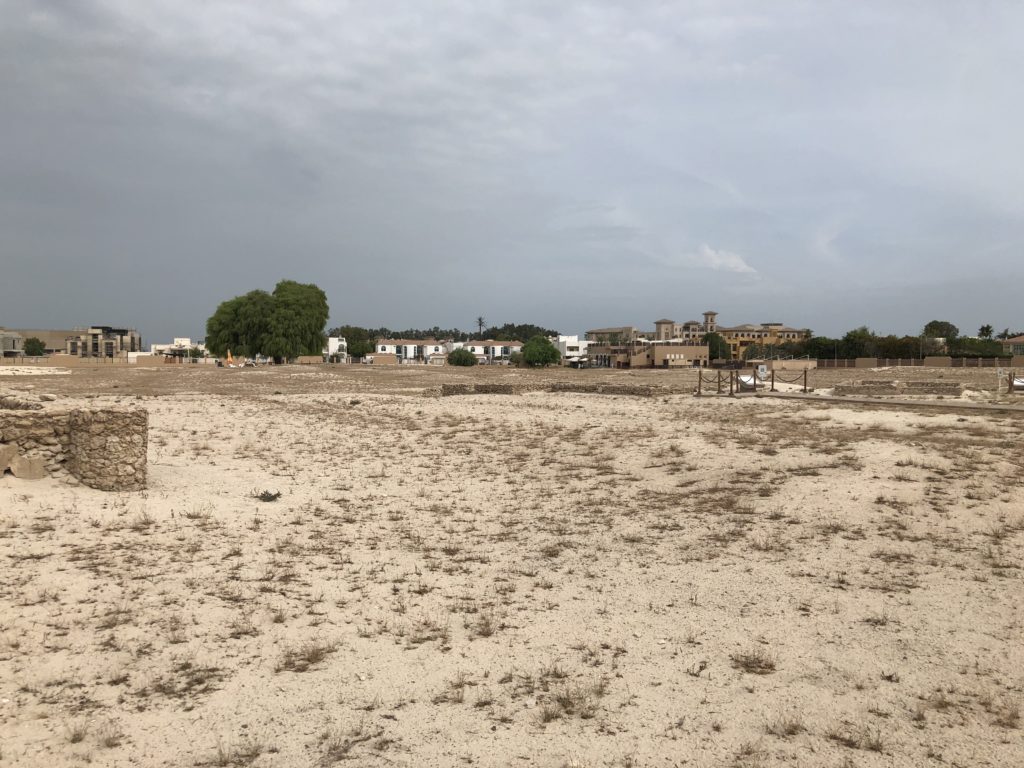
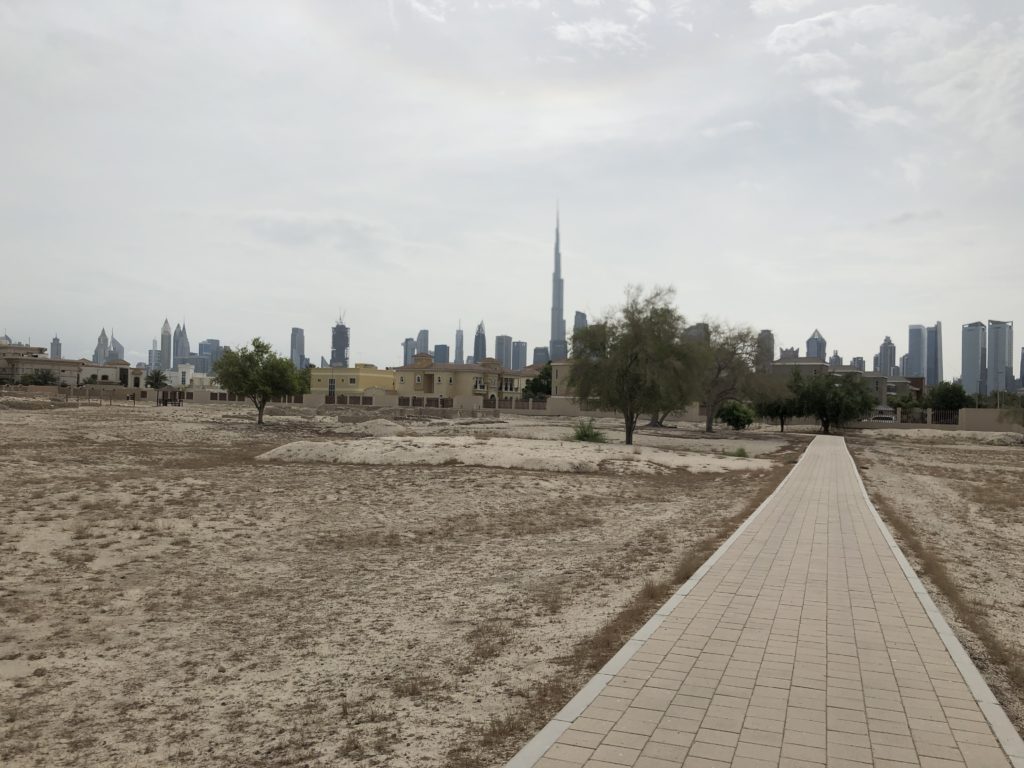
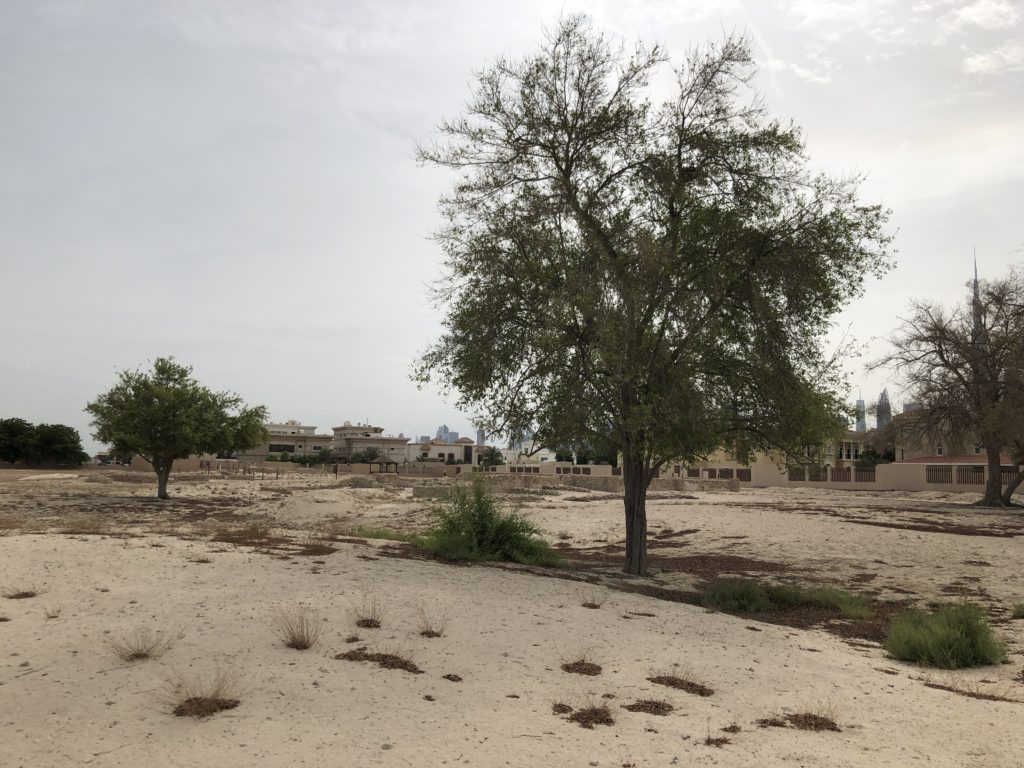
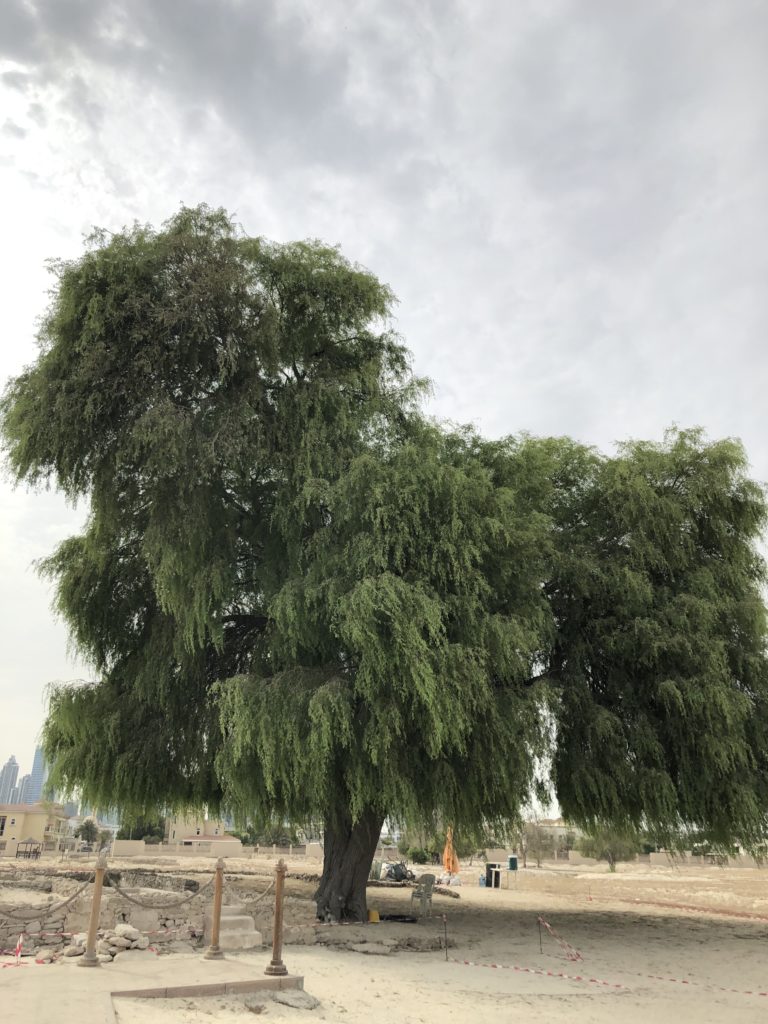
As you can see, there are trees popping up around the site. There are also lots of trees surrounding the site.
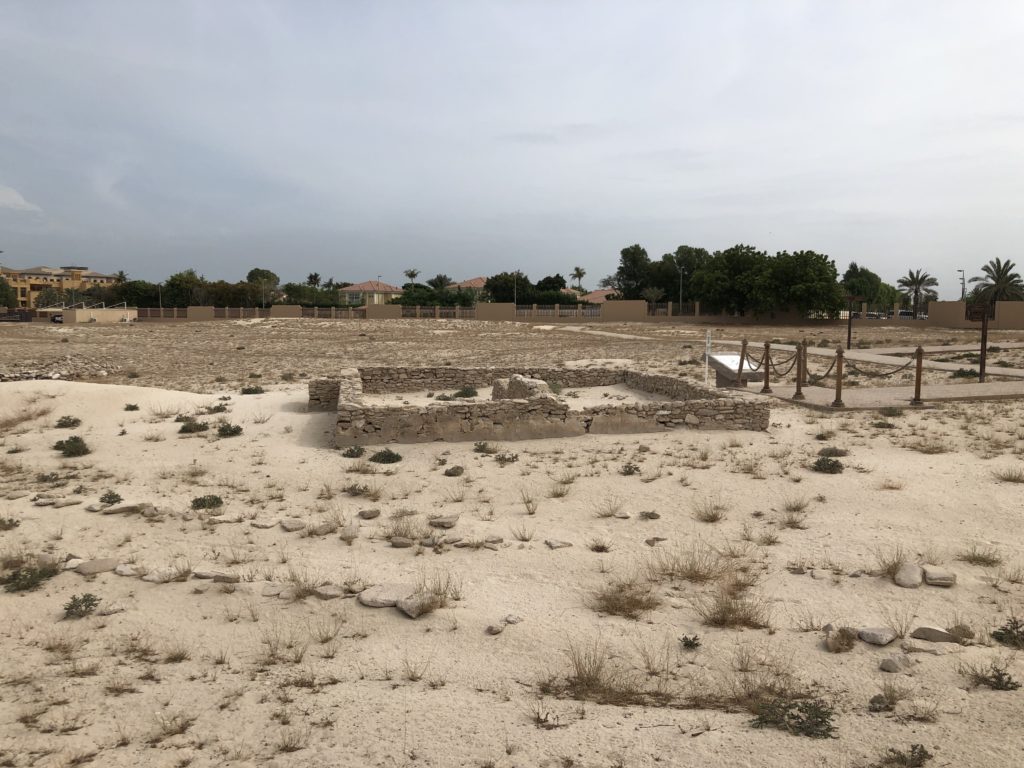
These photos show us that the Prophet (sallallahu alaihi wasallam) could only have known that Arabia would become green once more because he received revelation from Allah, which obviously means that the religion that he was sent with is the ONLY true religion.
3. Only one small market in the site
The site only had one small market.
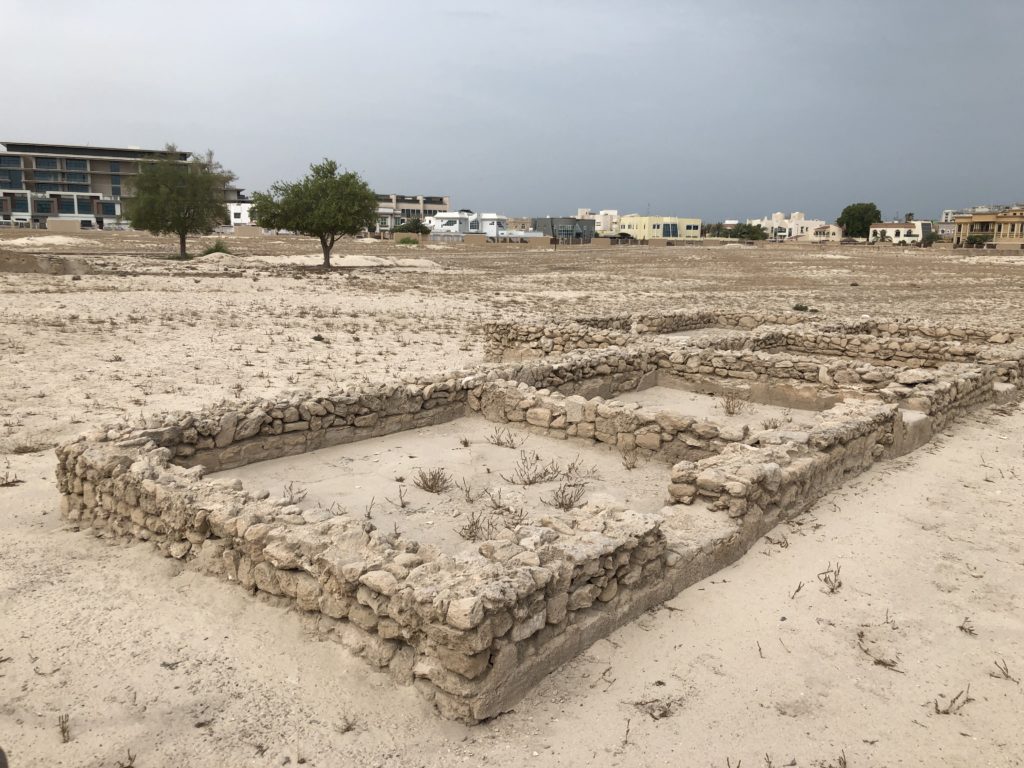
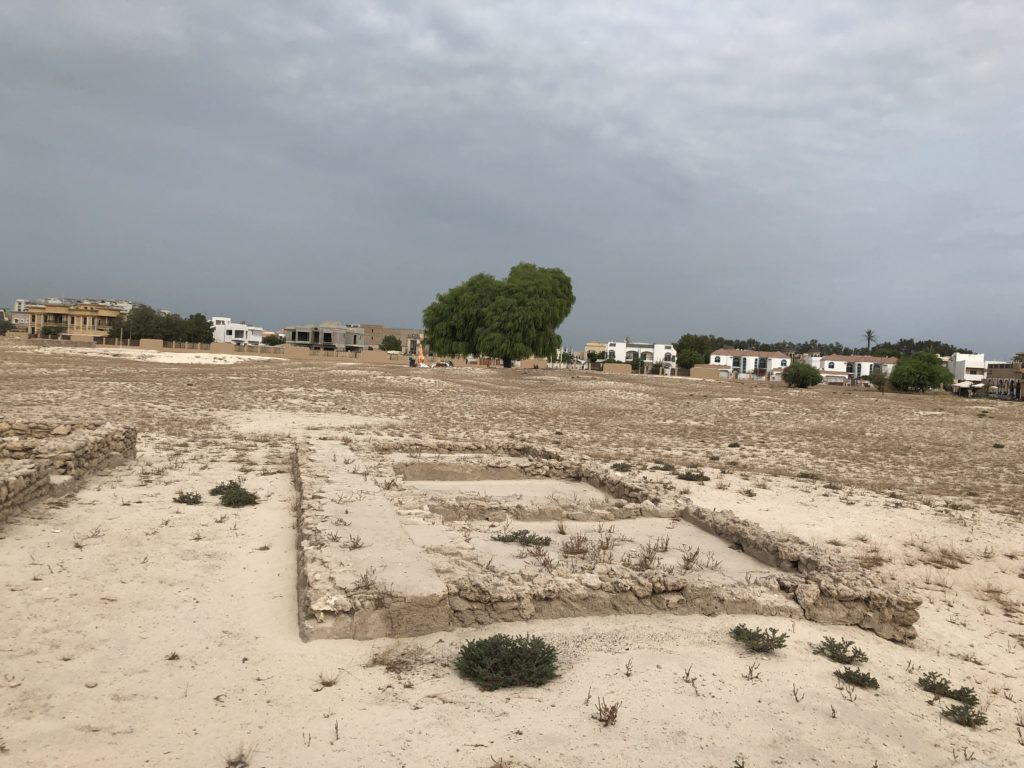
I don’t recall any shops close by when I was a child either. Today though, shops are everywhere as are malls because people just love to shop.
Again, how could the Prophet (sallallahu alaihi wasallam) have known that the market places would come near to one another when there were only a handful of market places in those times?
4. A simple, small masjid
There was a small, simple masjid close to the market place. At the time of its discovery, a few decades ago, it was the oldest one in this country. A few years ago, a masjid older than it was discovered.
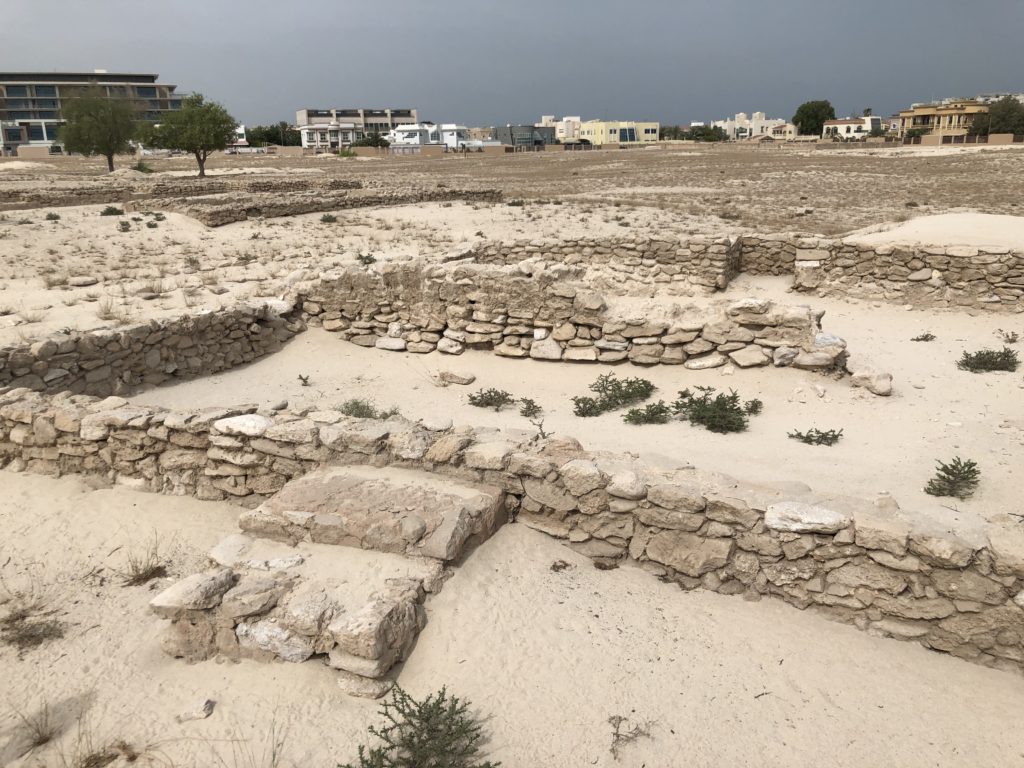
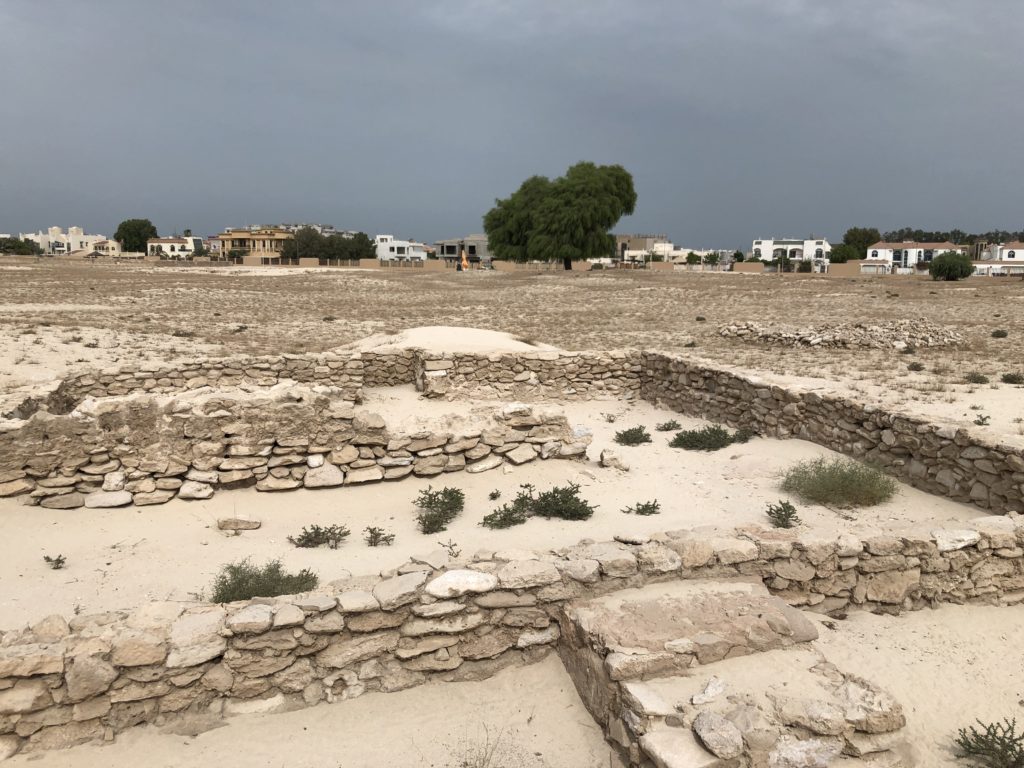
Three things that struck me about the masjid were:
a. It seemed slightly larger than the market place, which made sense because people in those days magnified places of worship because the hereafter was important to them. Today, most people magnify malls because only the worldly life is important to them and they behave as though the hereafter will never come – although the signs of its advent are all around them (as proven by the minor signs mentioned in this series).
The masjids are the places that Allah loves, not the markets.
عَنْ أَبِي هُرَيْرَةَ أَنَّ رَسُولَ اللَّهِ صلى الله عليه وسلم قَالَ : أَحَبُّ الْبِلاَدِ إِلَى اللَّهِ مَسَاجِدُهَا وَأَبْغَضُ الْبِلاَدِ إِلَى اللَّهِ أَسْوَاقُهَا
Abu Hurairah (radiallahu anhu) reported that the Messenger of Allah (salallahu alaihi wasallam) said: The parts of land dearest to Allah are its mosques, and the parts most hateful to Allah are its markets. [Sahih Muslim, Hadeeth No. 1416]
Here’s a statement to ponder:
وَحَدَّثَنِي عَنْ مَالِكٍ، أَنَّهُ بَلَغَهُ أَنَّ عَطَاءَ بْنَ يَسَارٍ، كَانَ إِذَا مَرَّ عَلَيْهِ بَعْضُ مَنْ يَبِيعُ فِي الْمَسْجِدِ دَعَاهُ فَسَأَلَهُ مَا مَعَكَ وَمَا تُرِيدُ فَإِنْ أَخْبَرَهُ أَنَّهُ يُرِيدُ أَنْ يَبِيعَهُ قَالَ عَلَيْكَ بِسُوقِ الدُّنْيَا فإِنَّمَا هَذَا سُوقُ الآخِرَةِ
And Yahya related to me from Malik that he had heard that if some one passed by Ata ibn Yasar in the mosque with something to trade, he would call him and ask, “What is the matter with you? What do you want?” If the man said that he wished to trade with him, he would say, “You need the market of this world. This is the market of the hereafter” [Muwatta Malik, Hadeeth No. 483]
In the past, they spent their time in the markets of the hereafter so they could live in harmony for eternity (i.e. in Paradise) but today, we spend time in the markets of this world so that we can get some happiness for a very short period of time. What terrible traders we have become!
b. The homes and market place were all in close proximity to the masjid, showing how their lives revolved around prayer. Today, when people look for new homes, only a minority of them will make sure that they have a masjid close by.
c. The steps of the masjid are just so cute and welcoming. I really found it heart warming for some reason. Today’s overly decorated masjids don’t have the feel of the masjids of the past. The focus on making the masjids look grand seems to have had an adverse impact on the prayers and the khusoo (humility) that is supposed to be felt in it.
5. Simple, small homes
There were three homes on the site and all of them were small and cosy, unlike today’s glitzy domiciles.
This was the first home:
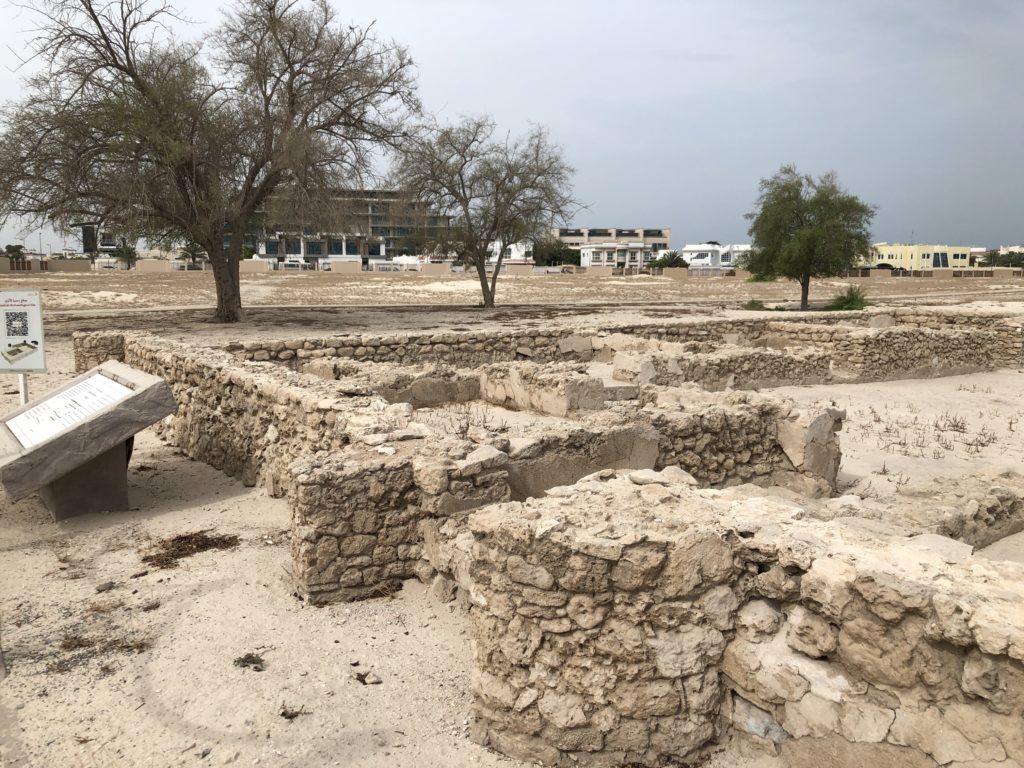
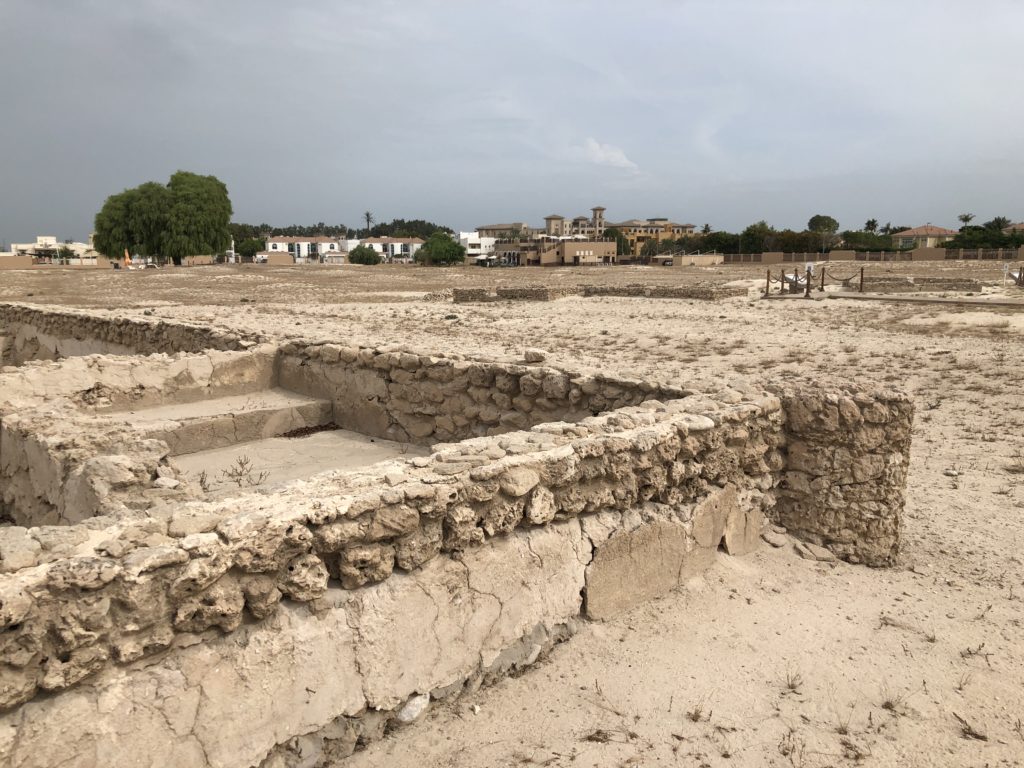
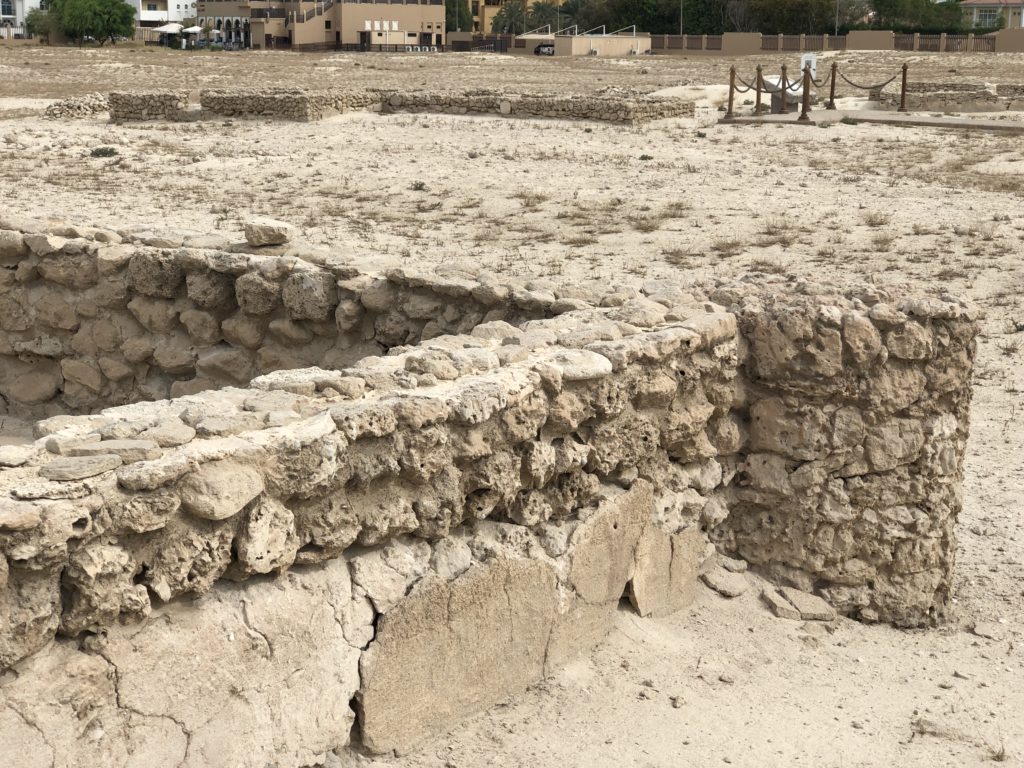
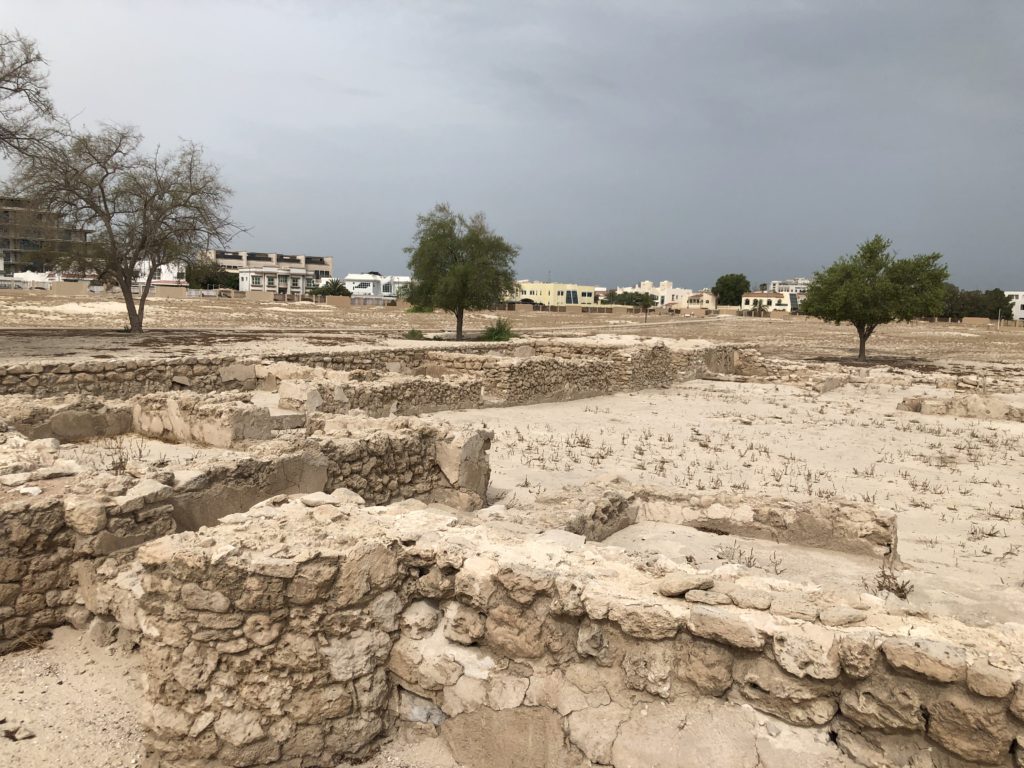
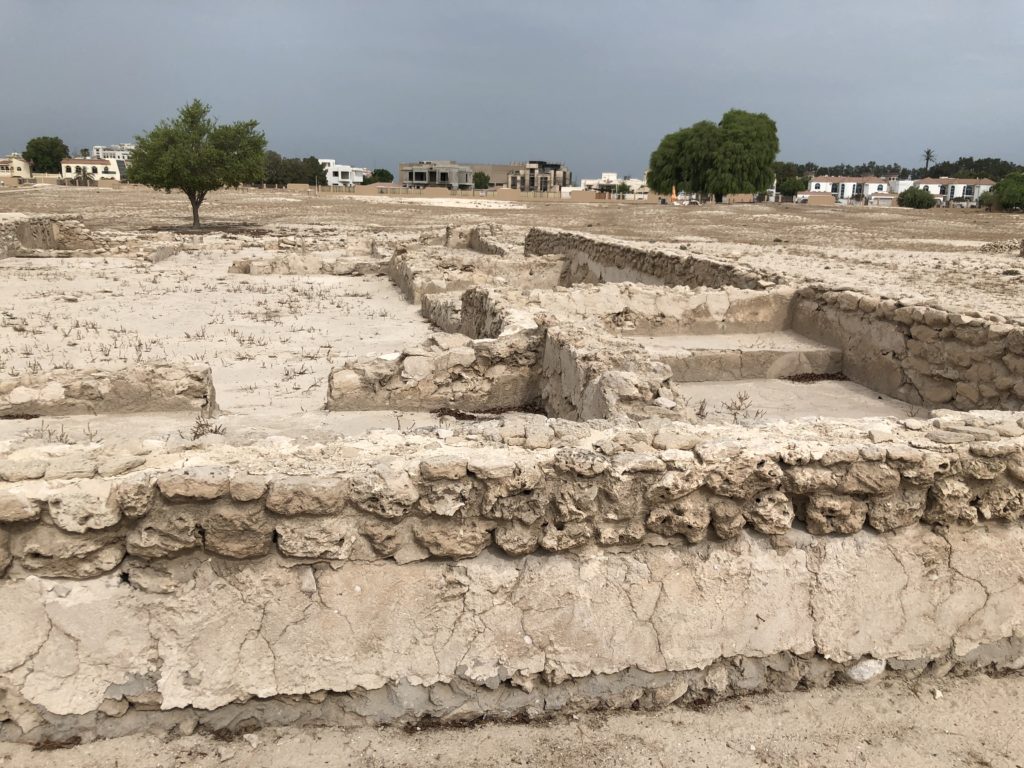
This was the second home:
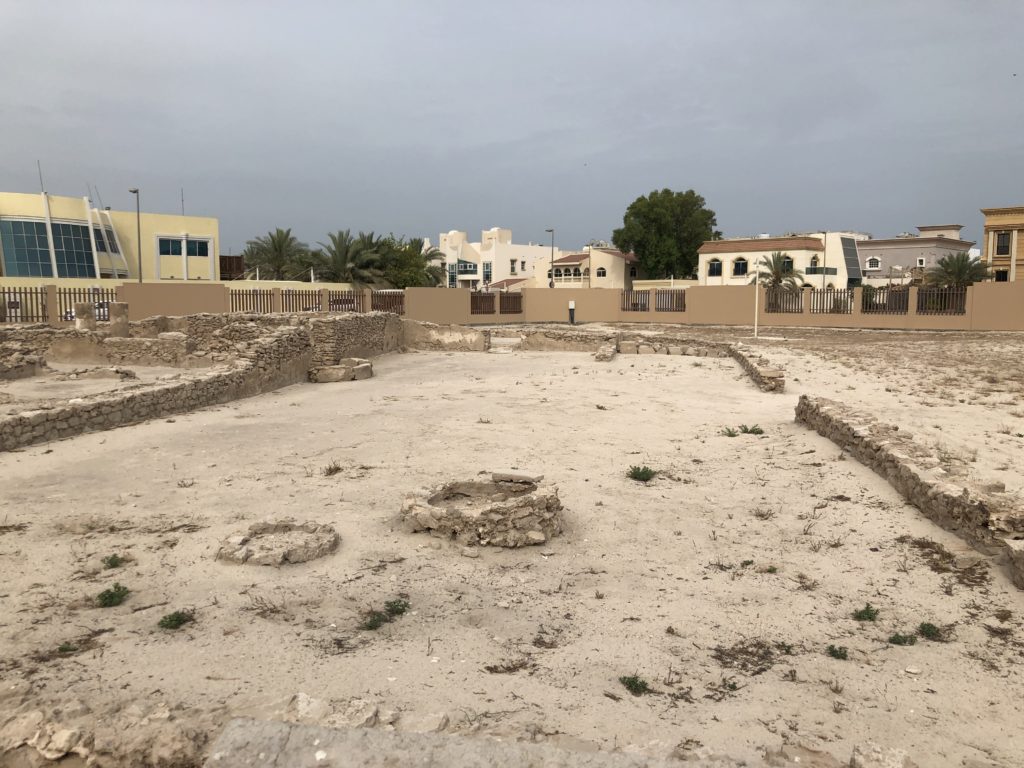
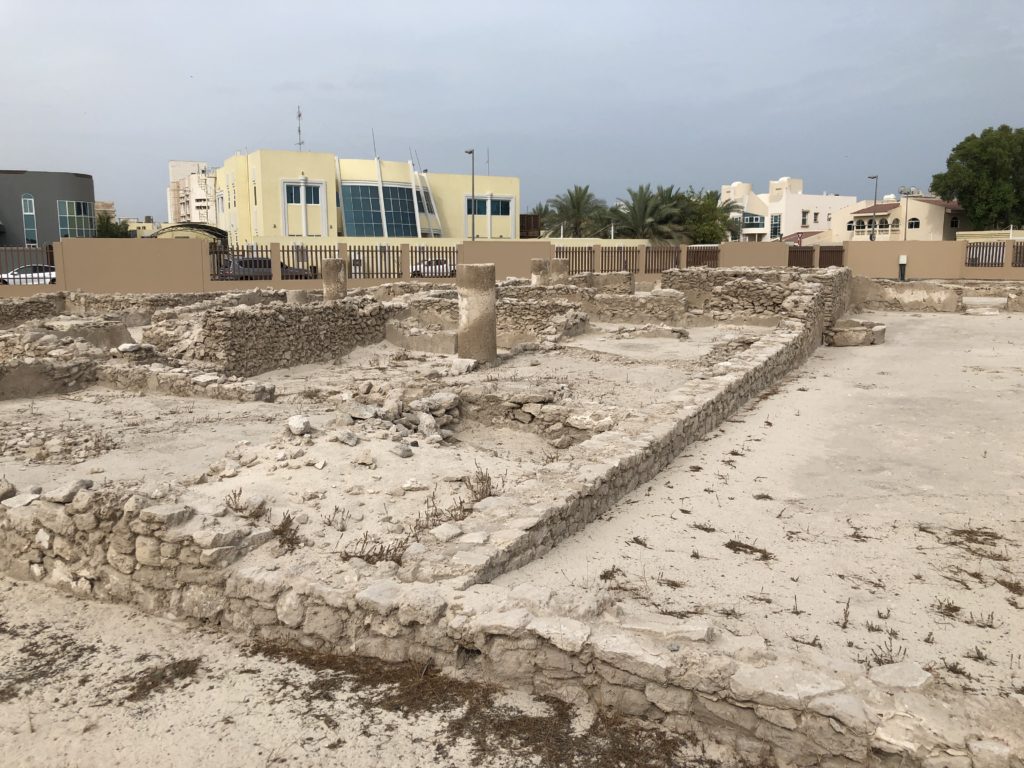
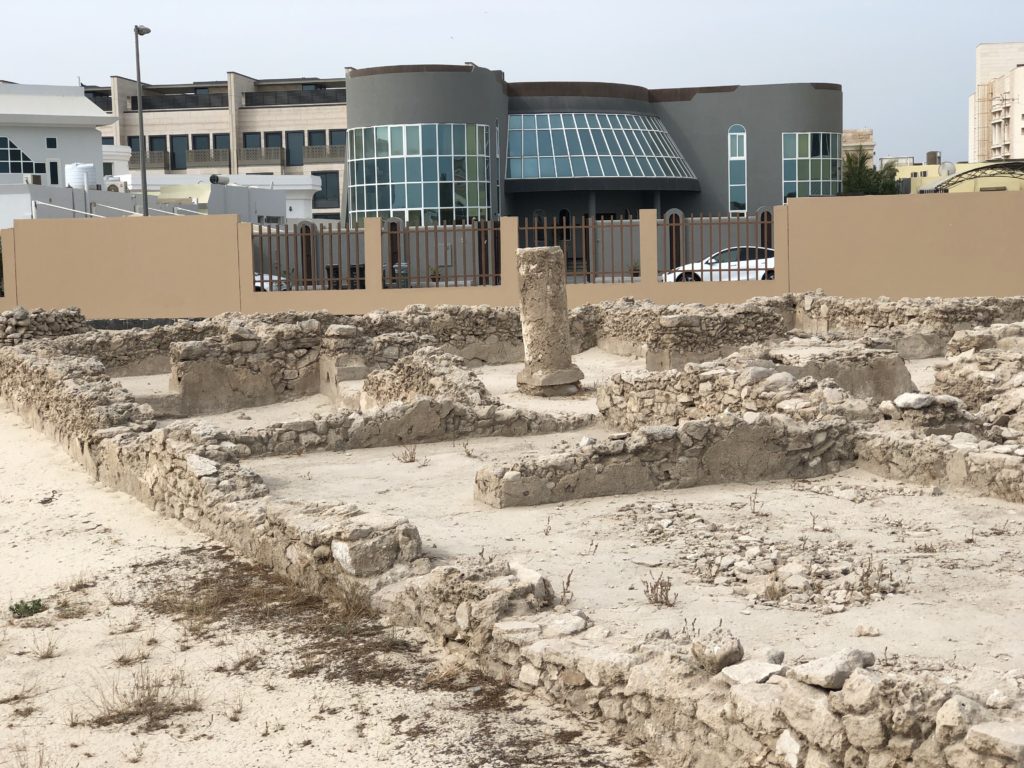
This was the third home:
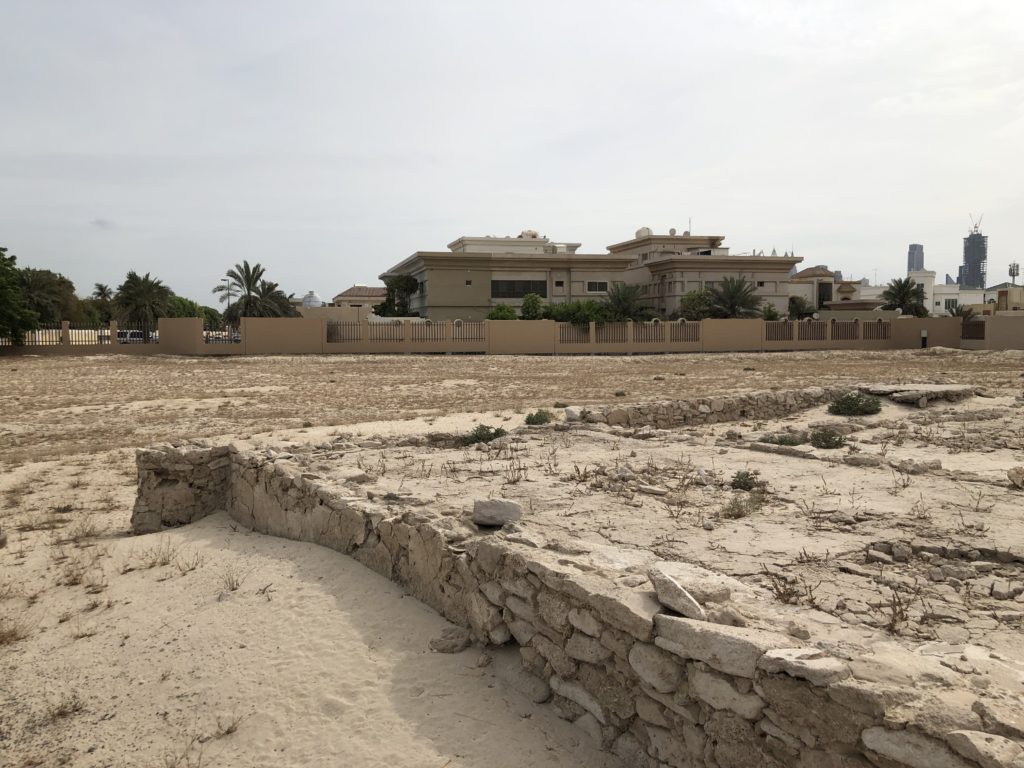
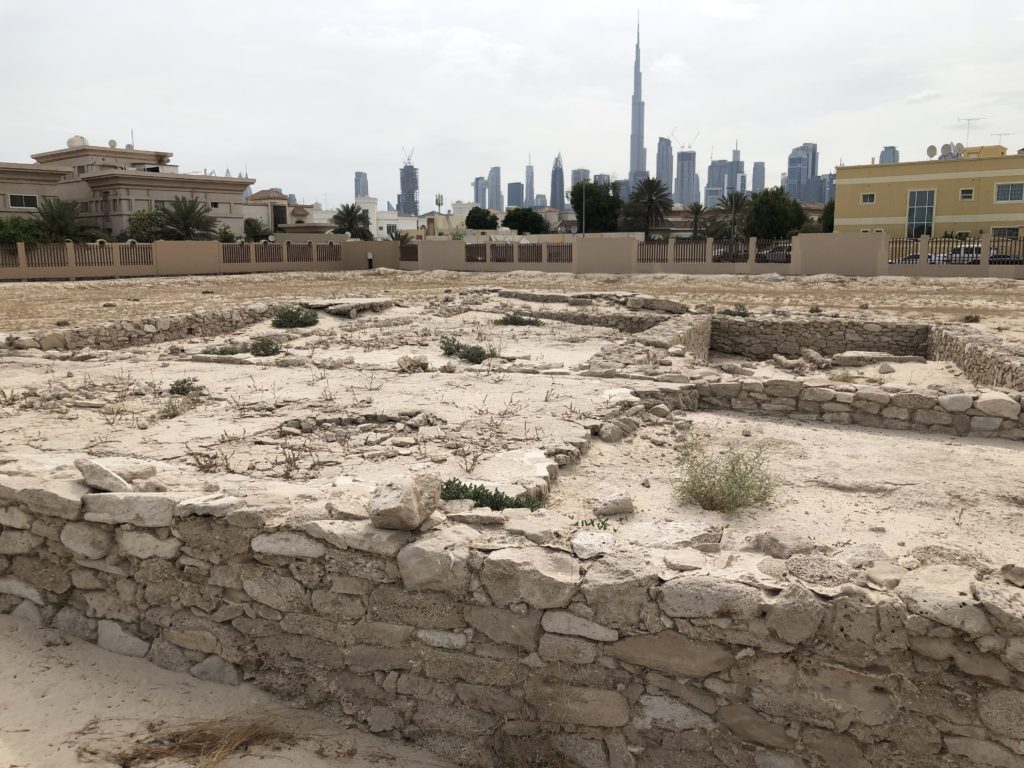
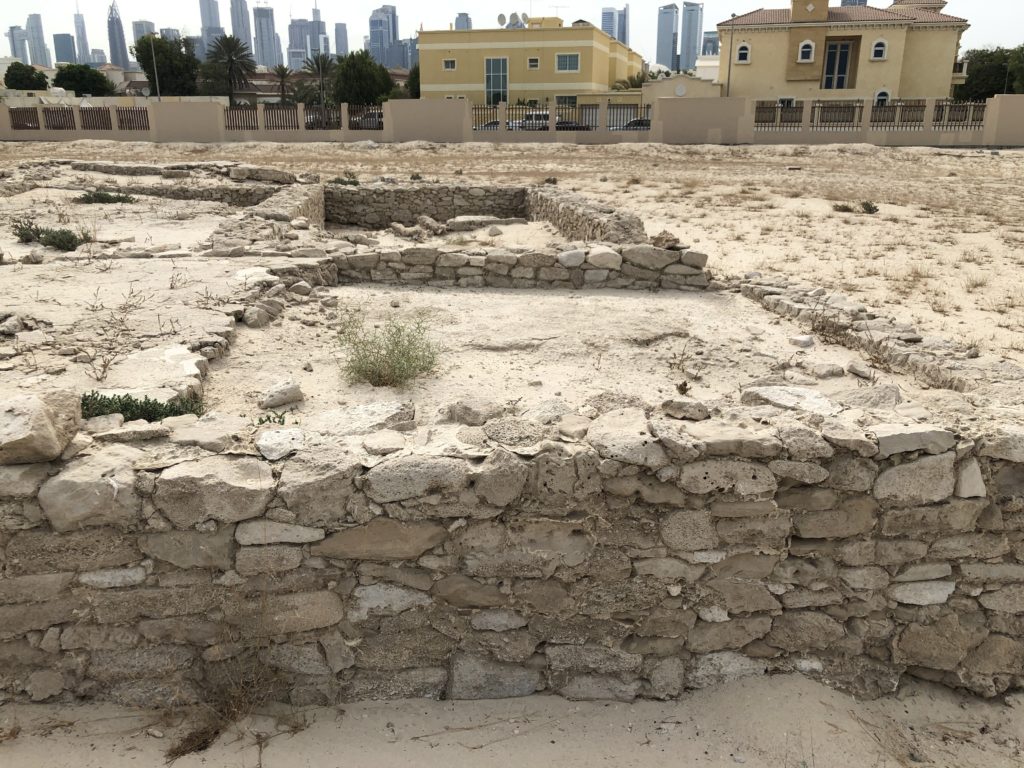
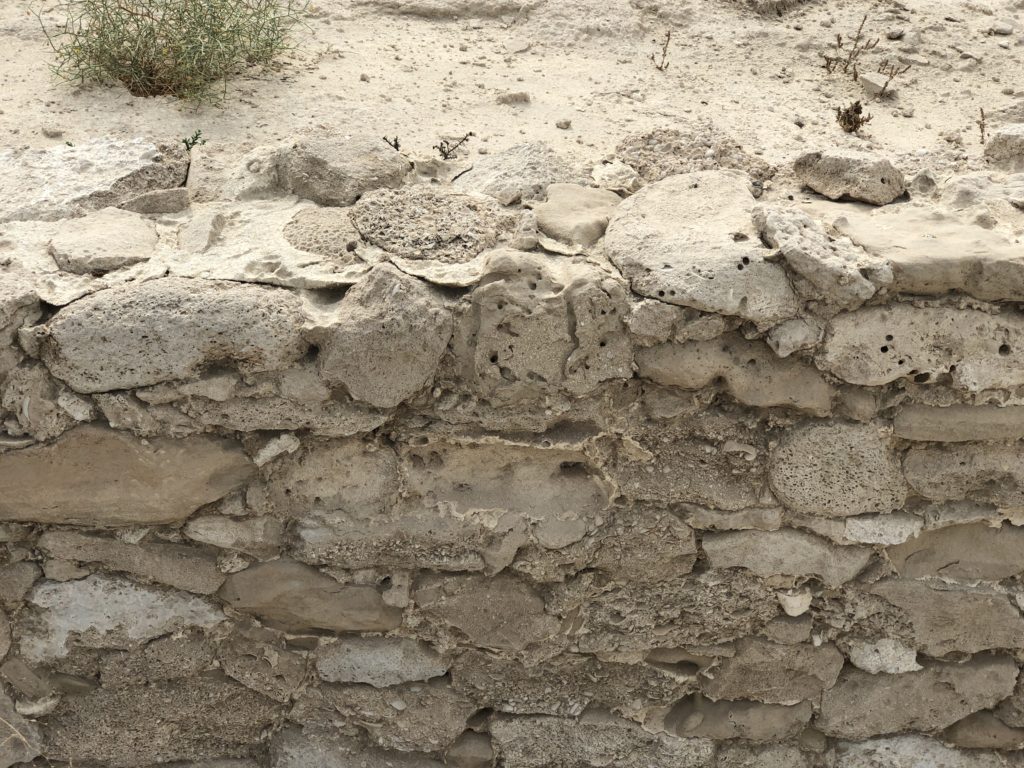
Just compare these homes to the ones right behind them (outside the site) and you can see that the Prophet (sallallahu alaihi wasallam) spoke the truth. Homes are indeed being decorated now.
One more thing that will be decorated
There is a statement from one of the Sahaabah (Companions of the Prophet (sallallahu alaihi wasallam) about one more thing being decorated – the mushaf, which is the written copy of the Quran:
عن أبي الدرداء قال: إذا زَخْرَفْتُم مَساجِدَكُم ، و حَلَّيْتُم مَصاحِفَكُم ، فالدَّمارُ علَيكُمْ
Abu Darda (radiallahu anhu) said: “When you start decorating your mosques and beautifying your masaahif (plural of mushaf), then destruction will be upon you.” [Sahih Al-Jaami, Hadeeth No. 585]
Interestingly enough, the statement above mentions the two most important hereafter-linked things: masjids, which are the places of prayer, and the mushaf, which contains the Speech of Allah and His final revelation. So, when one starts dragging dunya (the worldly life) into things that are there to bring you closer to Allah, well…what can one expect after that except destruction?
As we saw in Part 2, the masjids have definitely become decorated but what about the mushafs? Well, yes, those have become decorated although this seemed to have started centuries ago. Some even offered me a perfumed mushaf once, subhan Allah.
Here’s a look at some examples, with the first picture being that of a mushaf of the past:
[This set of images is from the Internet and are not mine.]
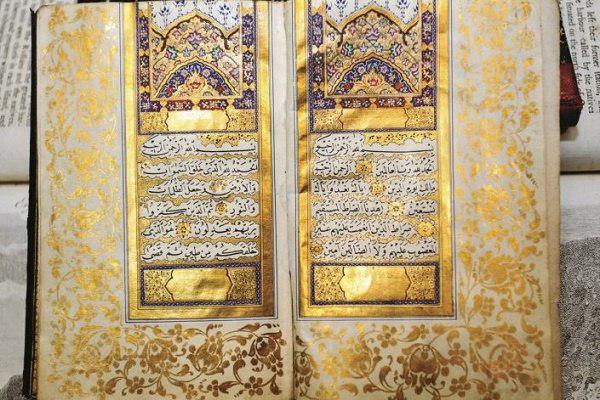
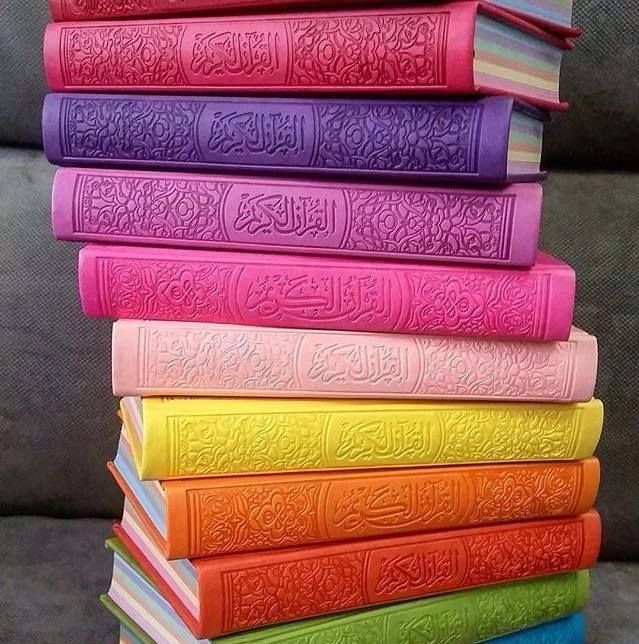
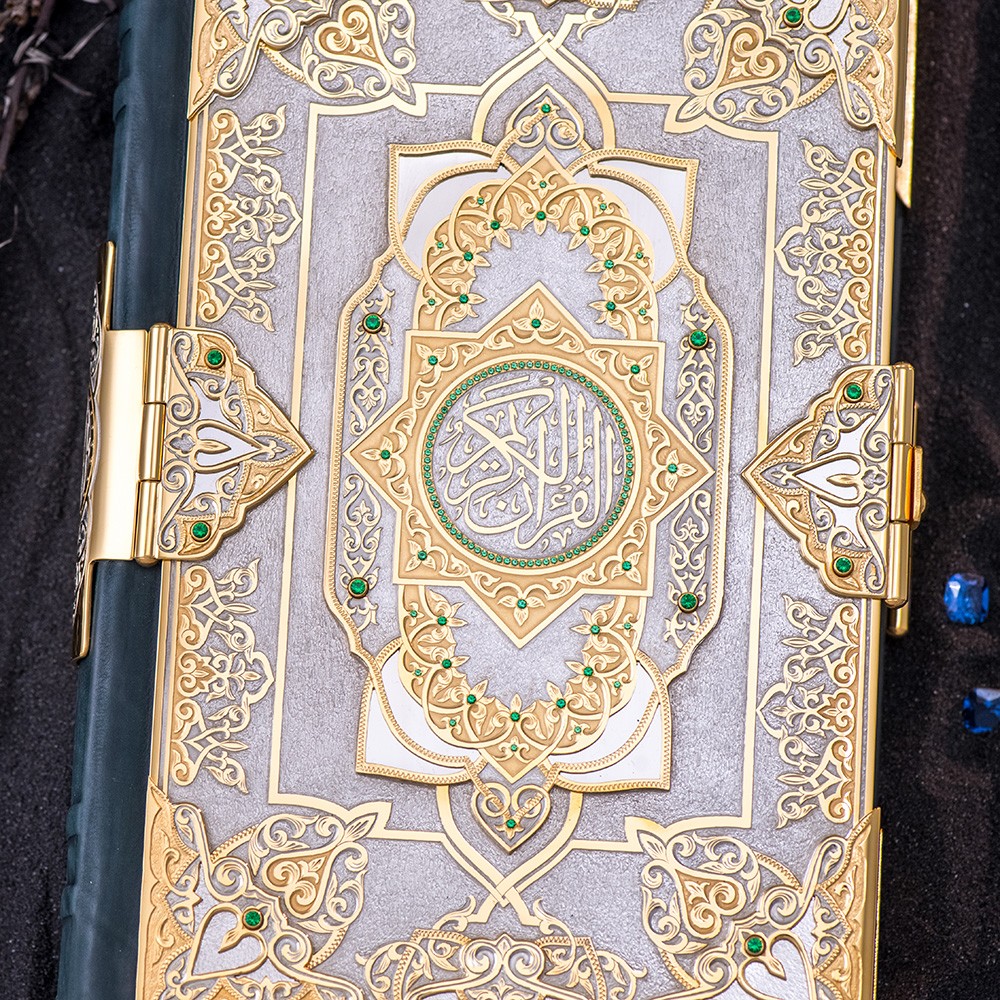
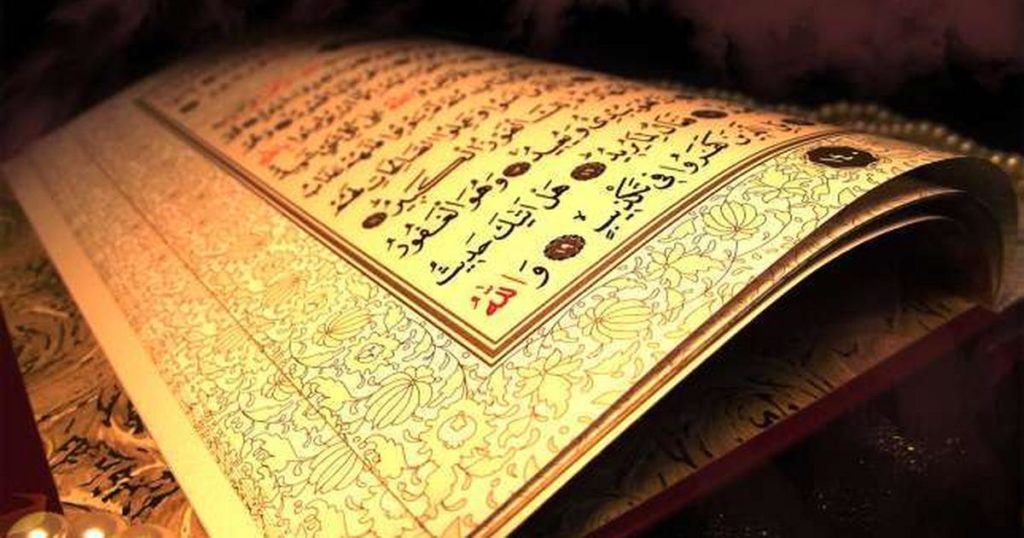
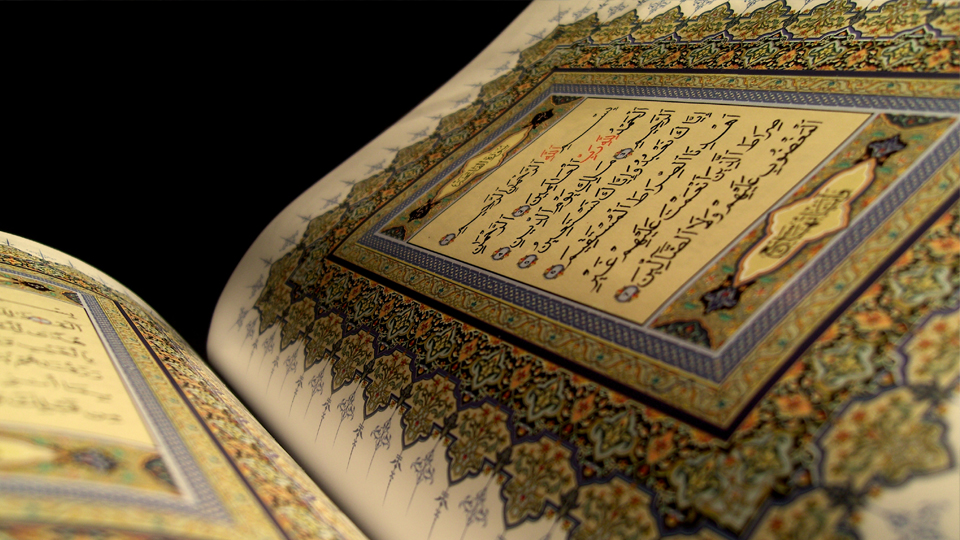
The Quran was revealed to be followed but today, many Muslims think that it is good to keep a beautiful mushaf at home on their shelves and recite it once a week (even if they cannot understand a word of what is being recited).
Brothers and Sisters, doing this is not called being guided, rather it is a sign of misguidance. The guided ones spend their time reciting the Quran (with understanding) and try their best to follow its commands.
Time to Ponder
So what do all these signs mean? Well, it means the following:
بَلْ تُؤْثِرُونَ الْحَيَاةَ الدُّنْيَا
وَالْآخِرَةُ خَيْرٌ وَأَبْقَىٰ
Nay, you prefer the life of this world; Although the Hereafter is better and more lasting. [Surah Al-Alaa (87) : 16-17]
That’s basically what they mean – that we are engrossed in this worldly life at the expense of the hereafter. And the Prophet (sallallahu alaihi wasallam) told us that this would happen as well:
عَنْ ثَوْبَانَ، قَالَ قَالَ رَسُولُ اللَّهِ صلى الله عليه وسلم : يُوشِكُ الأُمَمُ أَنْ تَدَاعَى عَلَيْكُمْ كَمَا تَدَاعَى الأَكَلَةُ إِلَى قَصْعَتِهَا . فَقَالَ قَائِلٌ وَمِنْ قِلَّةٍ نَحْنُ يَوْمَئِذٍ قَالَ : بَلْ أَنْتُمْ يَوْمَئِذٍ كَثِيرٌ وَلَكِنَّكُمْ غُثَاءٌ كَغُثَاءِ السَّيْلِ وَلَيَنْزِعَنَّ اللَّهُ مِنْ صُدُورِ عَدُوِّكُمُ الْمَهَابَةَ مِنْكُمْ وَلَيَقْذِفَنَّ اللَّهُ فِي قُلُوبِكُمُ الْوَهَنَ . فَقَالَ قَائِلٌ يَا رَسُولَ اللَّهِ وَمَا الْوَهَنُ قَالَ : حُبُّ الدُّنْيَا وَكَرَاهِيَةُ الْمَوْتِ
Narrated Thawban (radiallahu anhu): “The Prophet (sallallahu alaihi wasallam) said: The people will soon summon one another to attack you as people when eating invite others to share their dish. Someone asked: Will that be because of our small numbers at that time? He replied: No, you will be numerous at that time, but you will be scum like the scum of the sea, and Allah will take fear of you from the hearts of your enemy and cast al-wahn into your hearts. So someone asked: What is al-wahn? Messenger of Allah (sallallahu alaihi wasallam): He replied: Love of the world and dislike of death.” [Sunan Abee Dawood, Hadeeth No. 4297. Graded “sahih” (authentic) by Al-Albani.]
[Here’s an earlier post of mine dedicated to the above hadeeth.]
If we see minor sign after minor sign coming to fruition, then are we not supposed to wake up from our slumber and hasten to worship Allah properly? Instead, we are doing this:
اقْتَرَبَ لِلنَّاسِ حِسَابُهُمْ وَهُمْ فِي غَفْلَةٍ مُّعْرِضُونَ
مَا يَأْتِيهِم مِّن ذِكْرٍ مِّن رَّبِّهِم مُّحْدَثٍ إِلَّا اسْتَمَعُوهُ وَهُمْ يَلْعَبُونَ
Draws near for mankind their reckoning, while they turn away in heedlessness. Comes not unto them an admonition (a chapter of the Quran) from their Lord as a recent revelation but they listen to it while they play. [Surah Al-Anbiya (21) : 1-2]
If the hour is coming closer, as evidenced by all these minor signs, then why are we not preparing for it? Why are we not seeking Islamic knowledge? Why aren’t we rectifying our aqeedah (creed) the way the Prophet (sallallahu alaihi wasallam) rectified the aqeedah of his companions?
Is it because we think that the dunya (worldly) knowledge is more important? Well, the Quran says otherwise:
يَعْلَمُونَ ظَاهِرًا مِّنَ الْحَيَاةِ الدُّنْيَا وَهُمْ عَنِ الْآخِرَةِ هُمْ غَافِلُونَ
أَوَلَمْ يَتَفَكَّرُوا فِي أَنفُسِهِم ۗ مَّا خَلَقَ اللَّهُ السَّمَاوَاتِ وَالْأَرْضَ وَمَا بَيْنَهُمَا إِلَّا بِالْحَقِّ وَأَجَلٍ مُّسَمًّى ۗ وَإِنَّ كَثِيرًا مِّنَ النَّاسِ بِلِقَاءِ رَبِّهِمْ لَكَافِرُونَ
They know only the outside appearance of the life of the world (i.e. the matters of their livelihood, like irrigating or sowing or reaping, etc.), and they are heedless of the Hereafter. Do they not think deeply (in their ownselves) about themselves (how Allah created them from nothing, and similarly He will resurrect them)? Allah has created not the heavens and the earth, and all that is between them, except with truth and for an appointed term. And indeed many of mankind deny the Meeting with their Lord. [Surah Ar-Rum (30) : 7-8]
فَأَعْرِضْ عَن مَّن تَوَلَّىٰ عَن ذِكْرِنَا وَلَمْ يُرِدْ إِلَّا الْحَيَاةَ الدُّنْيَا
ذَٰلِكَ مَبْلَغُهُم مِّنَ الْعِلْمِ ۚ إِنَّ رَبَّكَ هُوَ أَعْلَمُ بِمَن ضَلَّ عَن سَبِيلِهِ وَهُوَ أَعْلَمُ بِمَنِ اهْتَدَىٰ
Therefore withdraw (O Muhammad) from him who turns away from Our Reminder (this Quran) and desires nothing but the life of this world. That is what they could reach of knowledge. Verily, your Lord it is He Who knows best him who goes astray from His Path, and He knows best him who receives guidance. [Surah An-Najm (53) : 29-30]
The people referred to in the above two ayaat (verses) have only worldly knowledge but lack knowledge pertaining to the religion of Islam.
The Prophet (sallallahu alaihi wasallam) supplicated that this world should NOT be our main concern and that it should NOT be the limit of our knowledge:
عَن ابْن عُمَر، قَالَ قَلَّمَا كَانَ رَسُولُ اللَّهِ صلى الله عليه وسلم يَقُومُ مِنْ مَجْلِسٍ حَتَّى يَدْعُوَ بِهَؤُلاَءِ الْكَلِمَاتِ لأَصْحَابِهِ : اللَّهُمَّ اقْسِمْ لَنَا مِنْ خَشْيَتِكَ مَا يَحُولُ بَيْنَنَا وَبَيْنَ مَعَاصِيكَ وَمِنْ طَاعَتِكَ مَا تُبَلِّغُنَا بِهِ جَنَّتَكَ وَمِنَ الْيَقِينِ مَا تُهَوِّنُ بِهِ عَلَيْنَا مُصِيبَاتِ الدُّنْيَا وَمَتِّعْنَا بِأَسْمَاعِنَا وَأَبْصَارِنَا وَقُوَّتِنَا مَا أَحْيَيْتَنَا وَاجْعَلْهُ الْوَارِثَ مِنَّا وَاجْعَلْ ثَأْرَنَا عَلَى مَنْ ظَلَمَنَا وَانْصُرْنَا عَلَى مَنْ عَادَانَا وَلاَ تَجْعَلْ مُصِيبَتَنَا فِي دِينِنَا وَلاَ تَجْعَلِ الدُّنْيَا أَكْبَرَ هَمِّنَا وَلاَ مَبْلَغَ عِلْمِنَا وَلاَ تُسَلِّطْ عَلَيْنَا مَنْ لاَ يَرْحَمُنَا
So, to summarise, these signs point to a more worldly way of life. However, we were created to worship Allah alone so we should make the Pleasure of Allah and the Hereafter our main concern. Seeking and applying Islamic knowledge is truly the best way to do that.
Please note that we are allowed and encouraged to gain useful knowledge of permitted worldly matters but we should make sure that the Islamic knowledge takes precedence. The Companions of the Prophet (sallallahu alaihi wasallam) did this and Allah blessed them with an empire.
Are there more Prophetic Prophecies?
Some people might wonder if there are more minor signs or more prophecies of the Prophet (sallallahu alaihi wasallam). Yes, there are many more and books have been written on them. This short series was about some of those that can be proven visually.
For those that want more, here’s two ahadeeth to ponder over. The first one is regarding the loss of trustworthiness.
عَنْ حُذَيْفَةَ، قَالَ حَدَّثَنَا رَسُولُ اللَّهِ صلى الله عليه وسلم حَدِيثَيْنِ قَدْ رَأَيْتُ أَحَدَهُمَا وَأَنَا أَنْتَظِرُ الآخَرَ حَدَّثَنَا : أَنَّ الأَمَانَةَ نَزَلَتْ فِي جِذْرِ قُلُوبِ الرِّجَالِ ثُمَّ نَزَلَ الْقُرْآنُ فَعَلِمُوا مِنَ الْقُرْآنِ وَعَلِمُوا مِنَ السُّنَّةِ . ثُمَّ حَدَّثَنَا عَنْ رَفْعِ الأَمَانَةِ قَالَ : يَنَامُ الرَّجُلُ النَّوْمَةَ فَتُقْبَضُ الأَمَانَةُ مِنْ قَلْبِهِ فَيَظَلُّ أَثَرُهَا مِثْلَ الْوَكْتِ ثُمَّ يَنَامُ النَّوْمَةَ فَتُقْبَضُ الأَمَانَةُ مِنْ قَلْبِهِ فَيَظَلُّ أَثَرُهَا مِثْلَ الْمَجْلِ كَجَمْرٍ دَحْرَجْتَهُ عَلَى رِجْلِكَ فَنَفِطَ فَتَرَاهُ مُنْتَبِرًا وَلَيْسَ فِيهِ شَىْءٌ – ثُمَّ أَخَذَ حَصًى فَدَحْرَجَهُ عَلَى رِجْلِهِ – فَيُصْبِحُ النَّاسُ يَتَبَايَعُونَ لاَ يَكَادُ أَحَدٌ يُؤَدِّي الأَمَانَةَ حَتَّى يُقَالَ إِنَّ فِي بَنِي فُلاَنٍ رَجُلاً أَمِينًا . حَتَّى يُقَالَ لِلرَّجُلِ مَا أَجْلَدَهُ مَا أَظْرَفَهُ مَا أَعْقَلَهُ وَمَا فِي قَلْبِهِ مِثْقَالُ حَبَّةٍ مِنْ خَرْدَلٍ مِنْ إِيمَانٍ . وَلَقَدْ أَتَى عَلَىَّ زَمَانٌ وَمَا أُبَالِي أَيَّكُمْ بَايَعْتُ لَئِنْ كَانَ مُسْلِمًا لَيَرُدَّنَّهُ عَلَىَّ دِينُهُ وَلَئِنْ كَانَ نَصْرَانِيًّا أَوْ يَهُودِيًّا لَيَرُدَّنَّهُ عَلَىَّ سَاعِيهِ وَأَمَّا الْيَوْمَ فَمَا كُنْتُ لأُبَايِعَ مِنْكُمْ إِلاَّ فُلاَنًا وَفُلاَنًا
Hudhaifah (radiallahu anhu) reported: The Messenger of Allah (sallallahu alaihi wasallam) narrated to us two ahadith. I have seen one (crystallized into reality), and I am waiting for the other. He told us: Trustworthiness descended in the innermost (root) of the hearts of people. Then the Quran was revealed and they learnt from the Quran and they learnt from the Sunnah. Then he (the Prophet) told us about the removal of trustworthiness. He said: The man would have a wink of sleep and trustworthiness would be taken away from his heart leaving the impression of a faint mark. He would again sleep and trustworthiness would be taken away from his heart leaving an impression of a blister, as if you rolled down an ember on your foot and it was vesicled. He would see a swelling having nothing in it. He (the Prophet) then took up a pebble and rolled it down over his foot and (said): The people would enter into transactions amongst one another and hardly a person would be left who would return (things) entrusted to him. (And there would be so much paucity of honest persons) till it would be said: There in such a such tribe is a trustworthy man. And they would also say about a person: How prudent he is, how broad-minded he is and how intelligent he is, whereas in his heart there would not be faith even to the weight of a mustard seed. I have passed through a time in which I did not care with whom amongst you I entered into a transaction, for if he were a Muslim his faith would compel him to discharge his obligations to me and it he were a Christian or a Jew, the ruler would compel him to discharge his obligations to me. But today I would not enter into a transaction with you except so and so. [Sahih Muslim, Hadeeth No. 265. This hadeeth can also be found in Sahih Al-Bukhari but the word “amaanah” has been translated as honesty rather than trustworthiness.]
Ask yourself: are you one of the trustworthy ones? Or one of those who is untrustworthy?
The second hadeeth mentions five things that will happen:
عَنْ عَبْدِ اللَّهِ بْنِ عُمَرَ، قَالَ أَقْبَلَ عَلَيْنَا رَسُولُ اللَّهِ ـ صلى الله عليه وسلم ـ فَقَالَ : يَا مَعْشَرَ الْمُهَاجِرِينَ خَمْسٌ إِذَا ابْتُلِيتُمْ بِهِنَّ وَأَعُوذُ بِاللَّهِ أَنْ تُدْرِكُوهُنَّ لَمْ تَظْهَرِ الْفَاحِشَةُ فِي قَوْمٍ قَطُّ حَتَّى يُعْلِنُوا بِهَا إِلاَّ فَشَا فِيهِمُ الطَّاعُونُ وَالأَوْجَاعُ الَّتِي لَمْ تَكُنْ مَضَتْ فِي أَسْلاَفِهِمُ الَّذِينَ مَضَوْا . وَلَمْ يَنْقُصُوا الْمِكْيَالَ وَالْمِيزَانَ إِلاَّ أُخِذُوا بِالسِّنِينَ وَشِدَّةِ الْمَؤُنَةِ وَجَوْرِ السُّلْطَانِ عَلَيْهِمْ . وَلَمْ يَمْنَعُوا زَكَاةَ أَمْوَالِهِمْ إِلاَّ مُنِعُوا الْقَطْرَ مِنَ السَّمَاءِ وَلَوْلاَ الْبَهَائِمُ لَمْ يُمْطَرُوا وَلَمْ يَنْقُضُوا عَهْدَ اللَّهِ وَعَهْدَ رَسُولِهِ إِلاَّ سَلَّطَ اللَّهُ عَلَيْهِمْ عَدُوًّا مِنْ غَيْرِهِمْ فَأَخَذُوا بَعْضَ مَا فِي أَيْدِيهِمْ . وَمَا لَمْ تَحْكُمْ أَئِمَّتُهُمْ بِكِتَابِ اللَّهِ وَيَتَخَيَّرُوا مِمَّا أَنْزَلَ اللَّهُ إِلاَّ جَعَلَ اللَّهُ بَأْسَهُمْ بَيْنَهُمْ
It was narrated that Abdullah ibn Umar (radiallahu anhuma) said: “The Messenger of Allah (sallallahu alaihi wasallam) turned to us and said: ‘O Muhajiroon, there are five things with which you will be tested, and I seek refuge with Allah lest you live to see them: Immorality never appears among a people to such an extent that they commit it openly, but plagues and diseases that were never known among the predecessors will spread among them. They do not cheat in weights and measures but they will be stricken with famine, severe calamity and the oppression of their rulers. They do not withhold the zakah of their wealth, but rain will be withheld from the sky, and were it not for the animals, no rain would fall on them. They do not break their covenant with Allah and His Messenger, but Allah will enable their enemies to overpower them and take some of what is in their hands. Unless their leaders rule according to the Book of Allah and seek all good from that which Allah has revealed, Allah will cause them to fight one another.’” [Sunan Ibn Majah, Hadeeth No. 4019. Graded “hasan” (good) by Shaikh Al-Albani.]
In this age of immorality like adultery, homosexuality, transsexuality, incest, bestiality, etc. and pandemics and outbreaks like Covid-19 and monkeypox, this hadeeth should be sent to every Muslim to ponder over.
The whole hadeeth is basically a summary of today’s time. If only we would take heed and actually change our ways, instead of just nodding our heads after reading an Islamic article and then heading off to eat lunch, only to return as the very same person.
A plague, a health outbreak and a war should have been enough for us to turn to Allah and to make the hereafter our main concern. It is only Allah who can free us from these diseases and it is only Allah who provides. Instead, our reliance seems to be on vaccines (which are just a means) and on our rulers (to get fuel and grain).
As if this was not bad enough, many Muslims instead of being proud of Islam are actually watering it down. It’s quite shocking to hear of so many Muslims calling for “dialogue” with the disbelievers and “tolerance” with regards to other religions being openly displayed and called to.
These Muslims do not seem to understanding that they are going against the meaning of the Shahaadah (the testimony of faith) and undermining their own religion. They also don’t seem to realise that they are being used as pawns and are playing right into the hands of the enemies of Islam, who obviously don’t want people to know that Islam is the only true religion and that it is the only way to get to Paradise. This is what happens when Muslims refuse to spend their time studying the correct aqeedah (creed).
May Allah guide us all to the proper aqeedah and make us proud of this religion that He has blessed us with.
We need to promote the right “t” (tawheed i.e. singling out Allah for worship) and the right “d” (dawah i.e. calling to Islam) and not promote the wrong “t” (tolerance i.e. pretending that all the religions are equal) and the wrong “d” (dialogue i.e. once again, pretending that all the religions are equal.) Remember, we can behave in a good, just manner with non-Muslims without diluting our own religion.
Believe me, when we follow the straight path (and not our desires), our problems will lessen and that is when we will be strong as an Ummah (nation).
I’ll leave you with one of the short surahs of the Quran to ponder over.
بِسْمِ اللَّهِ الرَّحْمَٰنِ الرَّحِيمِ
In the Name of Allah, the Most Beneficent, the Most Merciful.
إِذَا السَّمَاءُ انفَطَرَتْ
When the heaven is cleft asunder.
وَإِذَا الْكَوَاكِبُ انتَثَرَتْ
And when the stars have fallen and scattered;
وَإِذَا الْبِحَارُ فُجِّرَتْ
And when the seas are burst forth (got dried up);
وَإِذَا الْقُبُورُ بُعْثِرَتْ
And when the graves are turned upside down (and they bring out their contents)
عَلِمَتْ نَفْسٌ مَّا قَدَّمَتْ وَأَخَّرَتْ
(Then) a person will know what he has sent forward and (what he has) left behind (of good or bad deeds).
يَا أَيُّهَا الْإِنسَانُ مَا غَرَّكَ بِرَبِّكَ الْكَرِيمِ
O man! What has made you careless concerning your Lord, the Most Generous?
الَّذِي خَلَقَكَ فَسَوَّاكَ فَعَدَلَكَ
Who created you, fashioned you perfectly, and gave you due proportion;
فِي أَيِّ صُورَةٍ مَّا شَاءَ رَكَّبَكَ
In whatever form He willed, He put you together.
كَلَّا بَلْ تُكَذِّبُونَ بِالدِّينِ
Nay! But you deny the Recompense (reward for good deeds and punishment for evil deeds).
وَإِنَّ عَلَيْكُمْ لَحَافِظِينَ
But verily, over you (are appointed angels in charge of mankind) to watch you.
كِرَامًا كَاتِبِينَ
Kiraman (honourable) Katibin writing down (your deeds).
يَعْلَمُونَ مَا تَفْعَلُونَ
They know all that you do.
إِنَّ الْأَبْرَارَ لَفِي نَعِيمٍ
Verily, the Abrar (pious and righteous) will be in delight (Paradise);
وَإِنَّ الْفُجَّارَ لَفِي جَحِيمٍ
And verily, the Fujjar (the wicked, disbelievers, sinners and evil-doers) will be in the blazing Fire (Hell),
يَصْلَوْنَهَا يَوْمَ الدِّينِ
In which they will enter, and taste its burning flame on the Day of Recompense,
وَمَا هُمْ عَنْهَا بِغَائِبِينَ
And they (Al-Fujjar) will not be absent therefrom (i.e. will not go out from the Hell).
وَمَا أَدْرَاكَ مَا يَوْمُ الدِّينِ
And what will make you know what the Day of Recompense is?
ثُمَّ مَا أَدْرَاكَ مَا يَوْمُ الدِّينِ
Again, what will make you know what the Day of Recompense is?
يَوْمَ لَا تَمْلِكُ نَفْسٌ لِّنَفْسٍ شَيْئًا ۖ وَالْأَمْرُ يَوْمَئِذٍ لِّلَّهِ
(It will be) the Day when no person shall have power (to do) anything for another, and the Decision, that Day, will be (wholly) with Allah.
[Surah Al-Infitaar (82): 1-19]
May Allah make us those who focus on the hereafter and make us of those who take heed of the signs around us.
